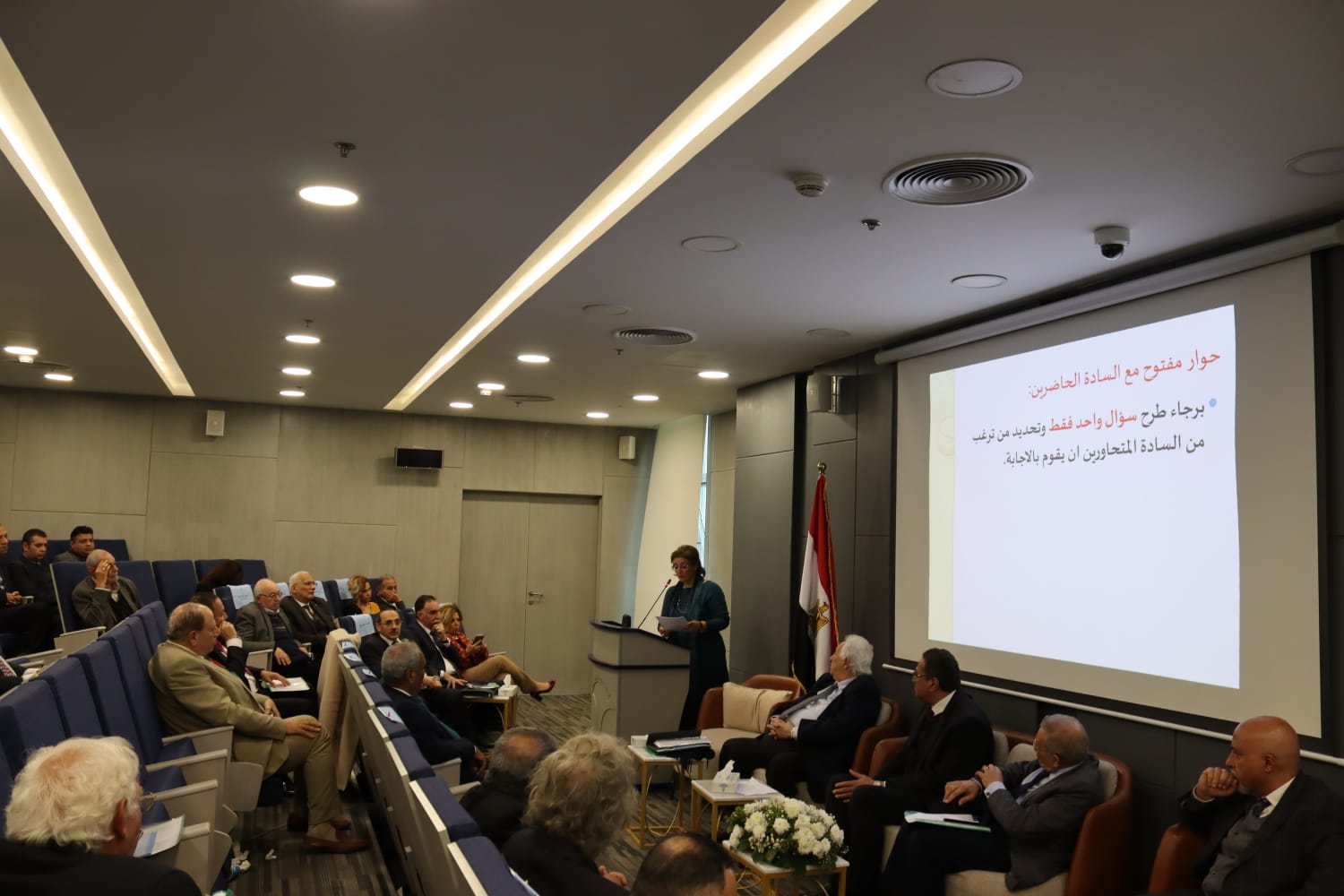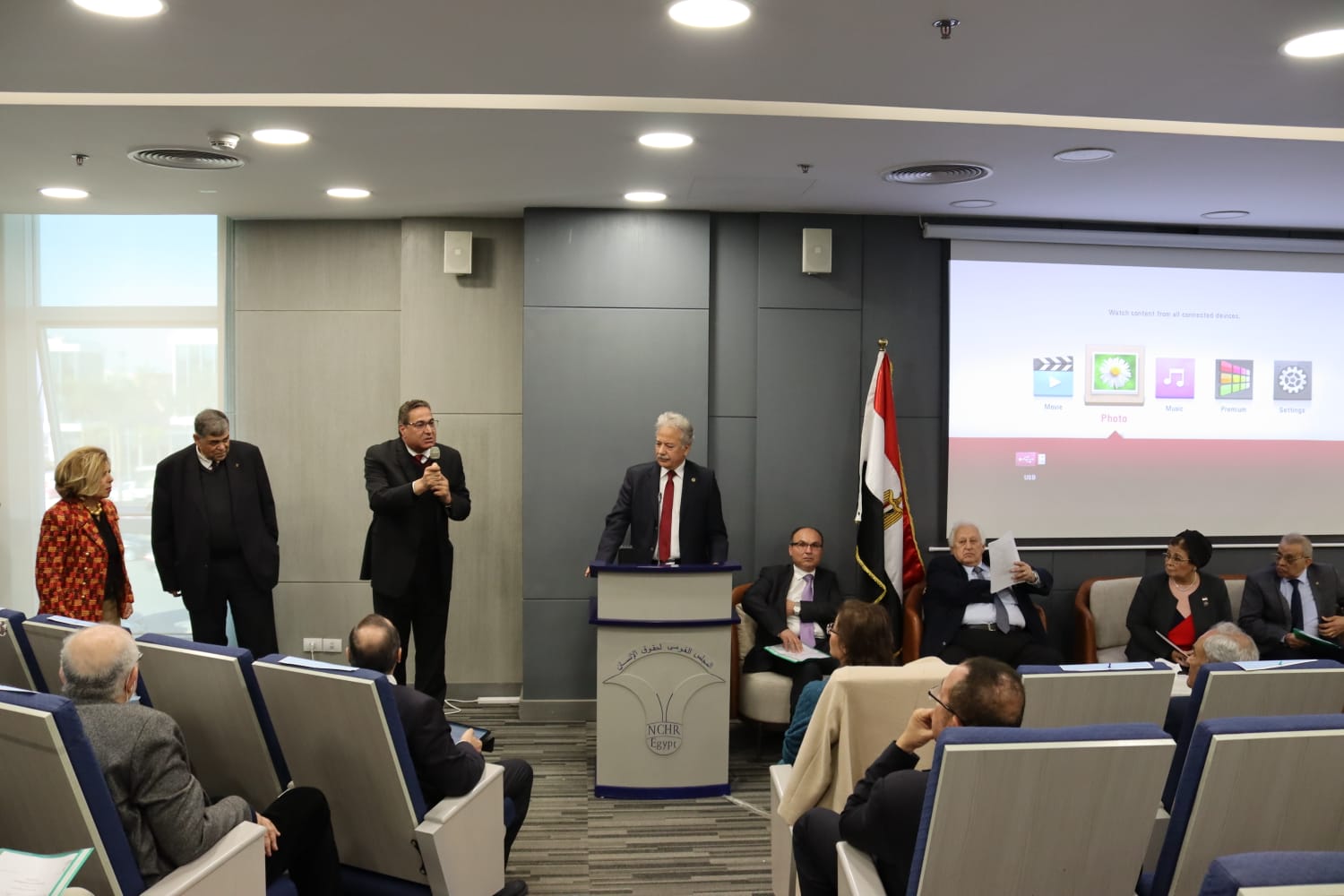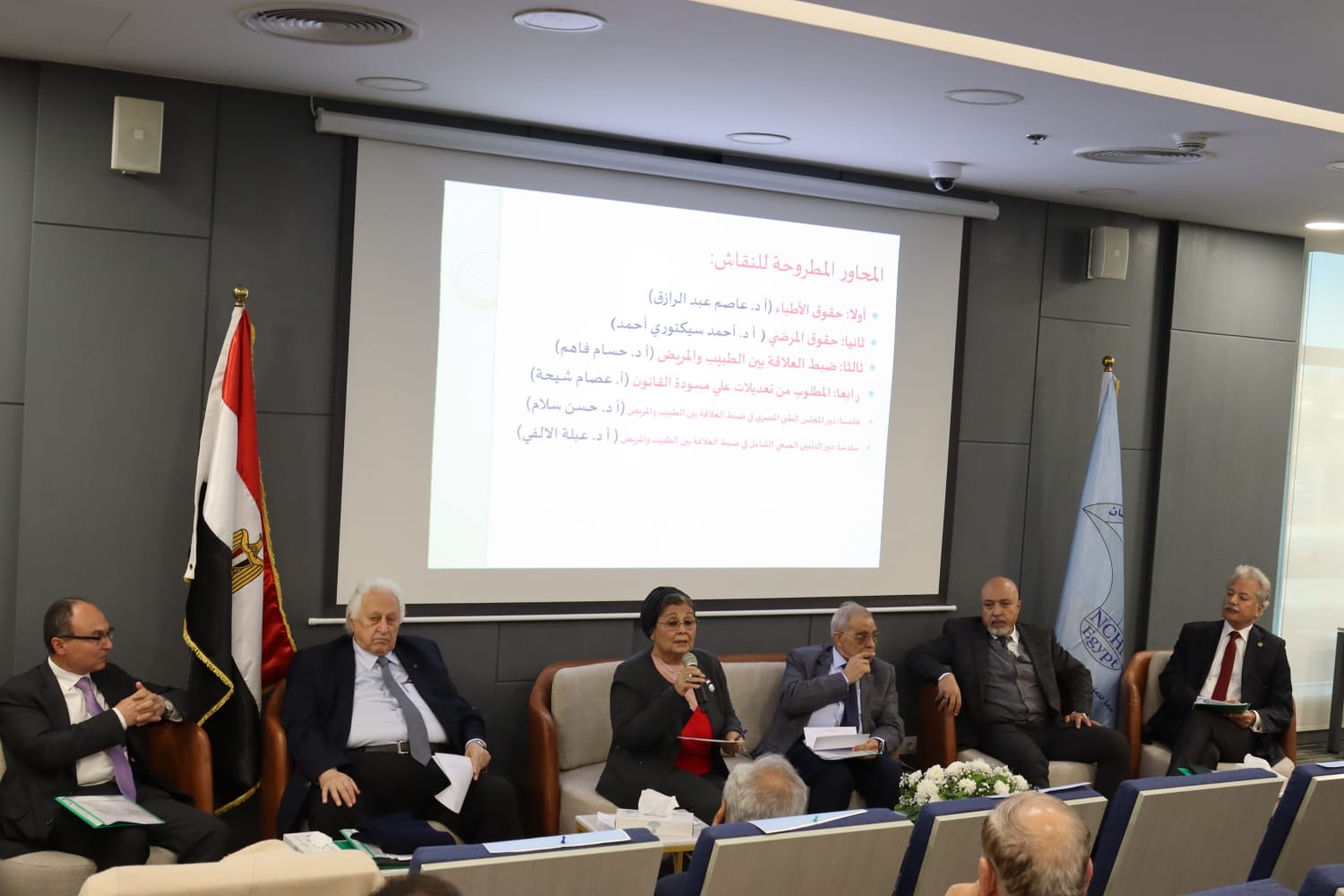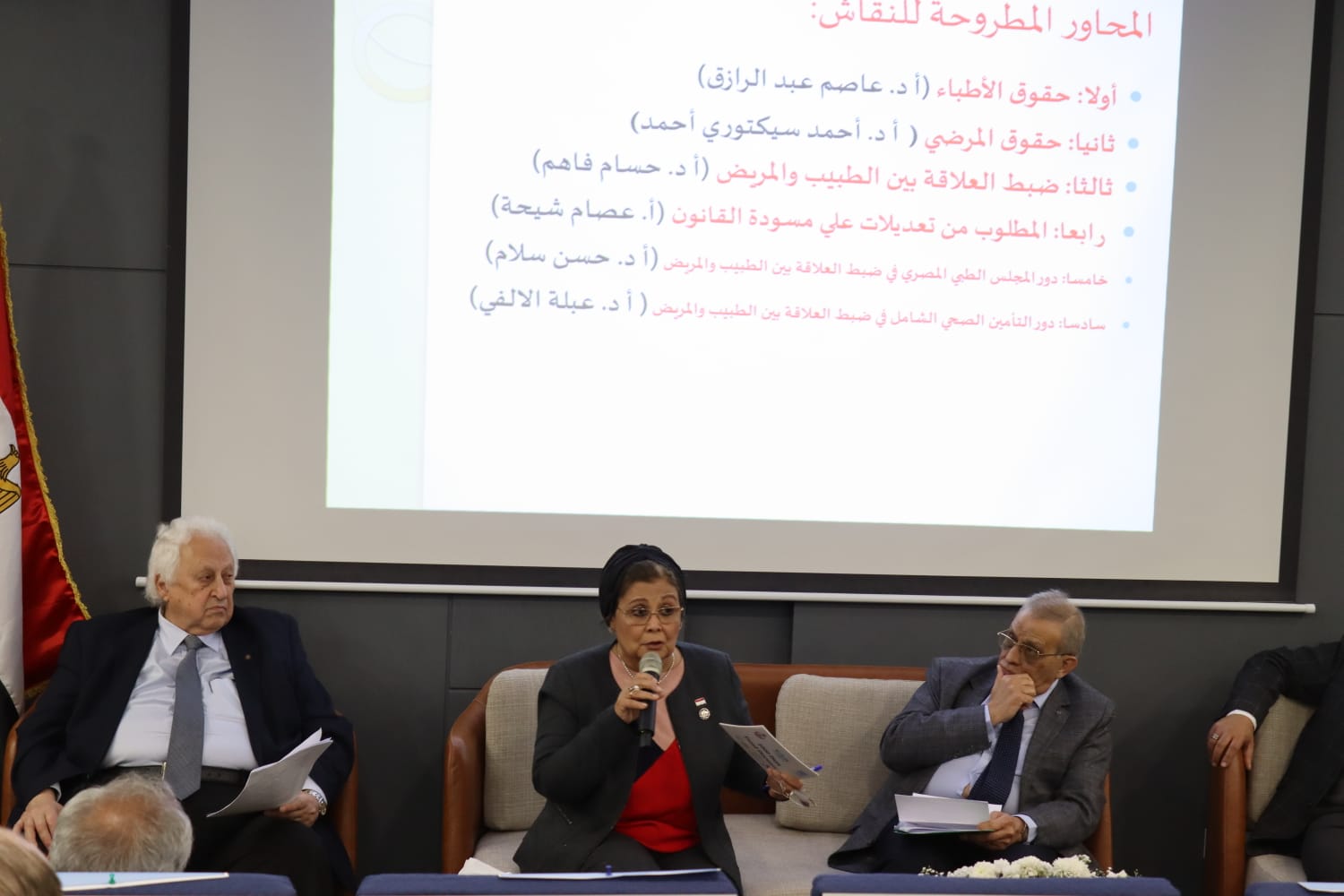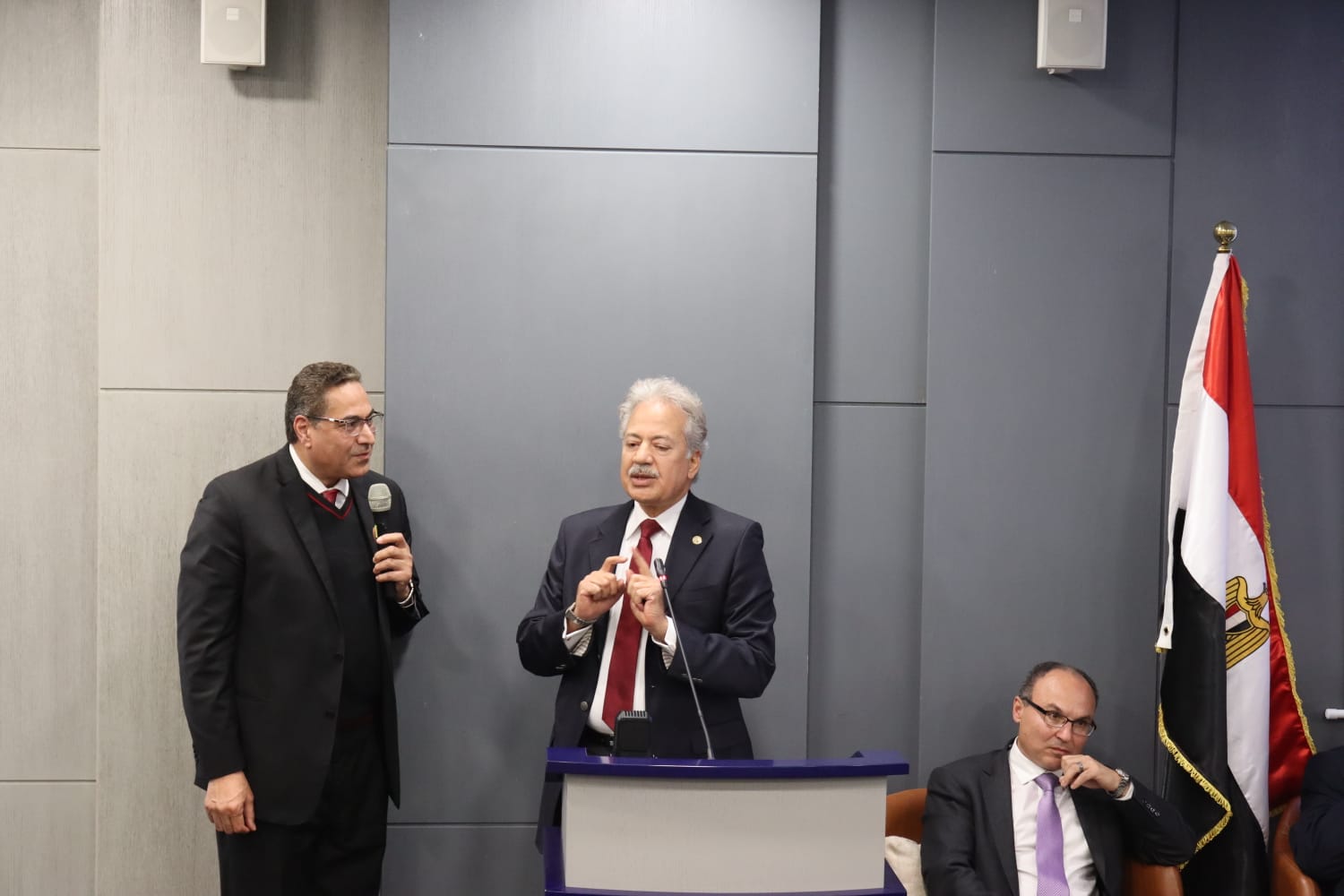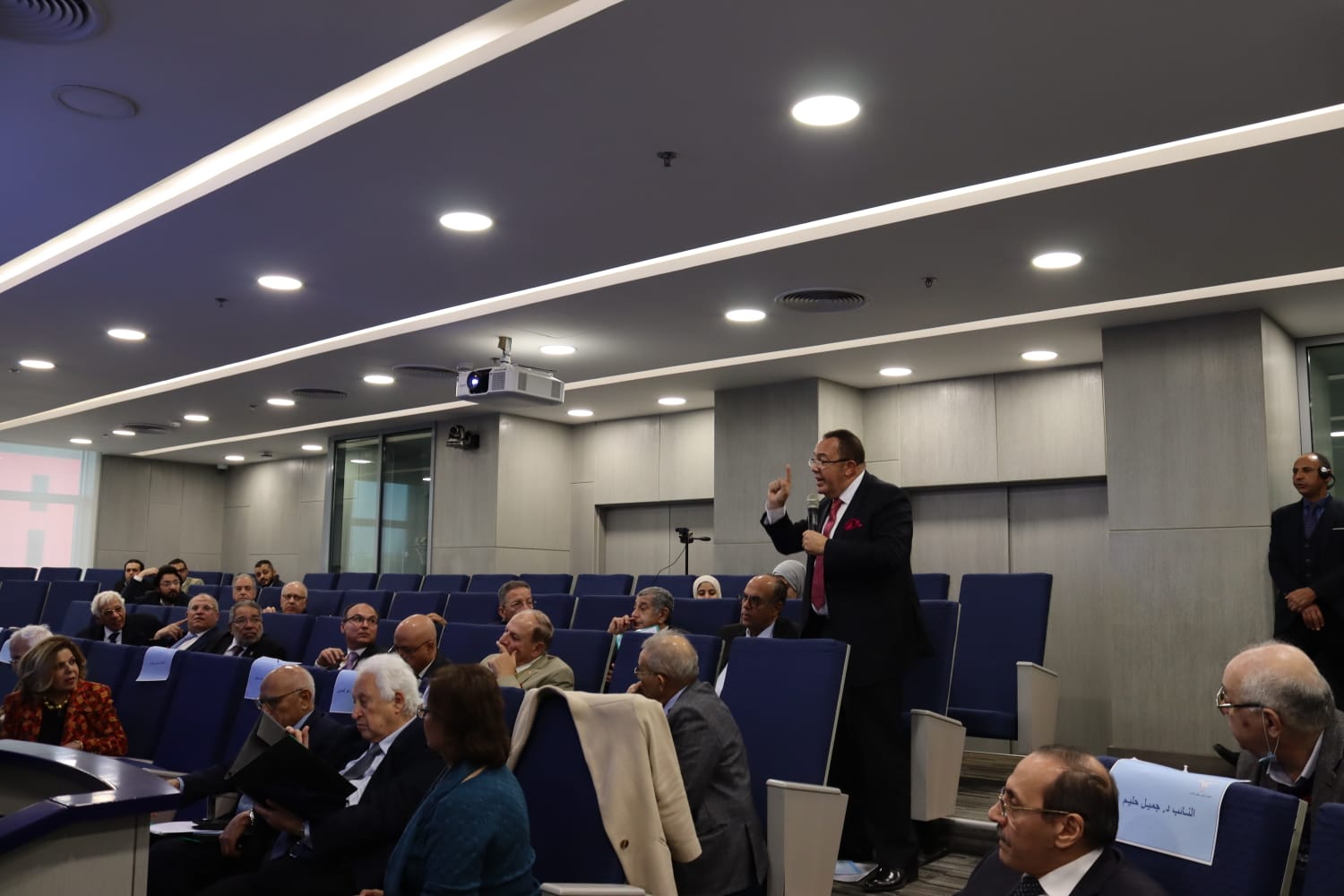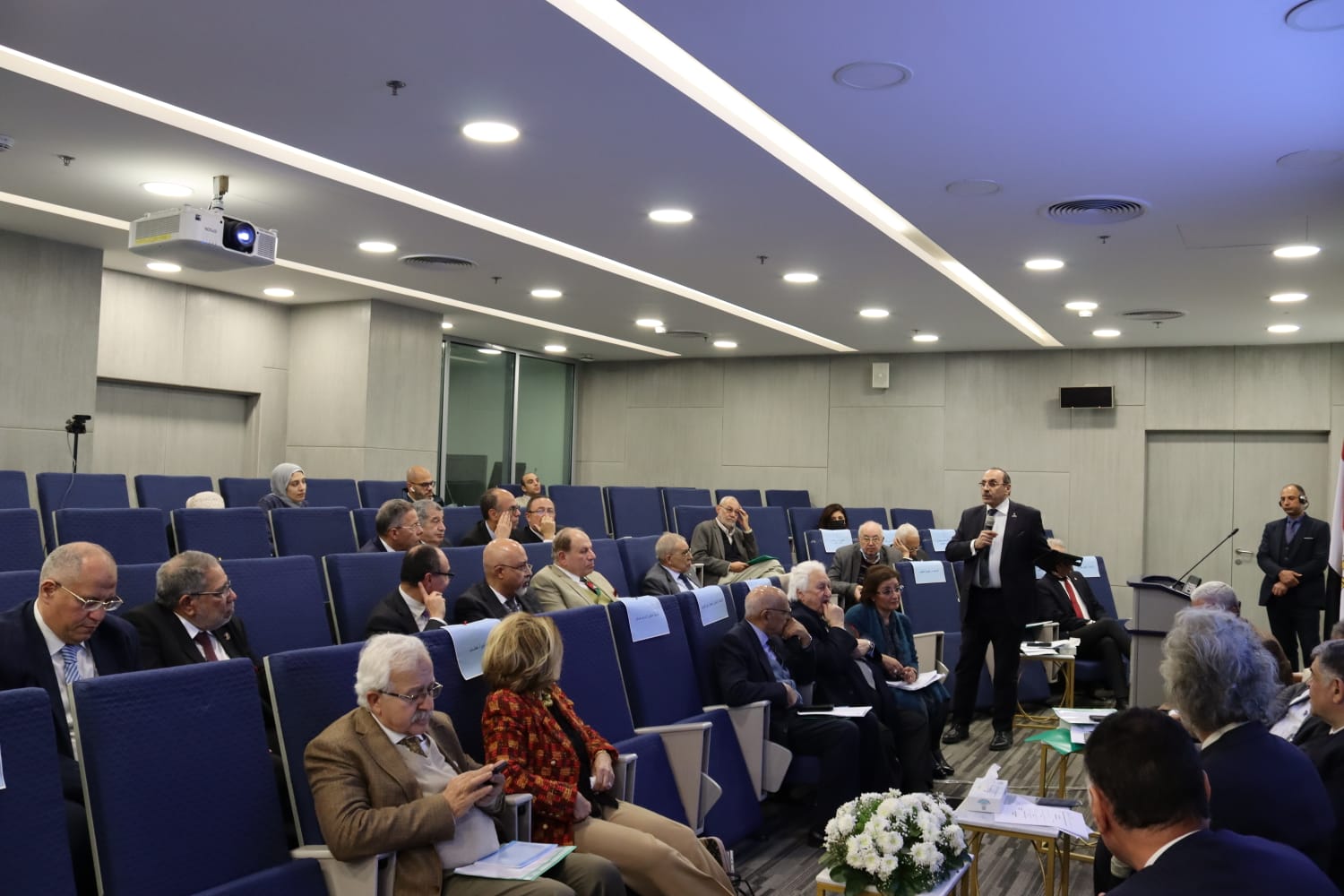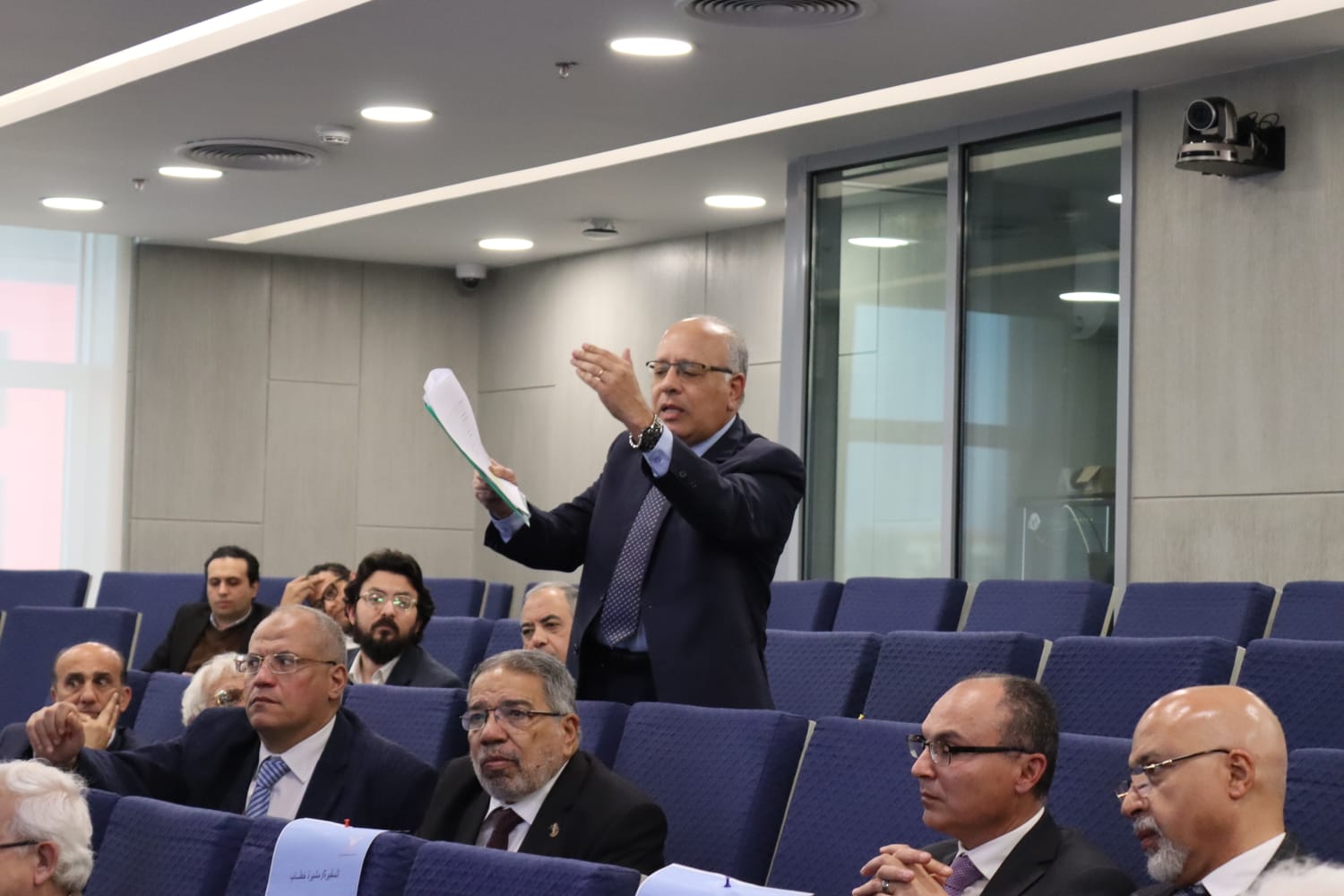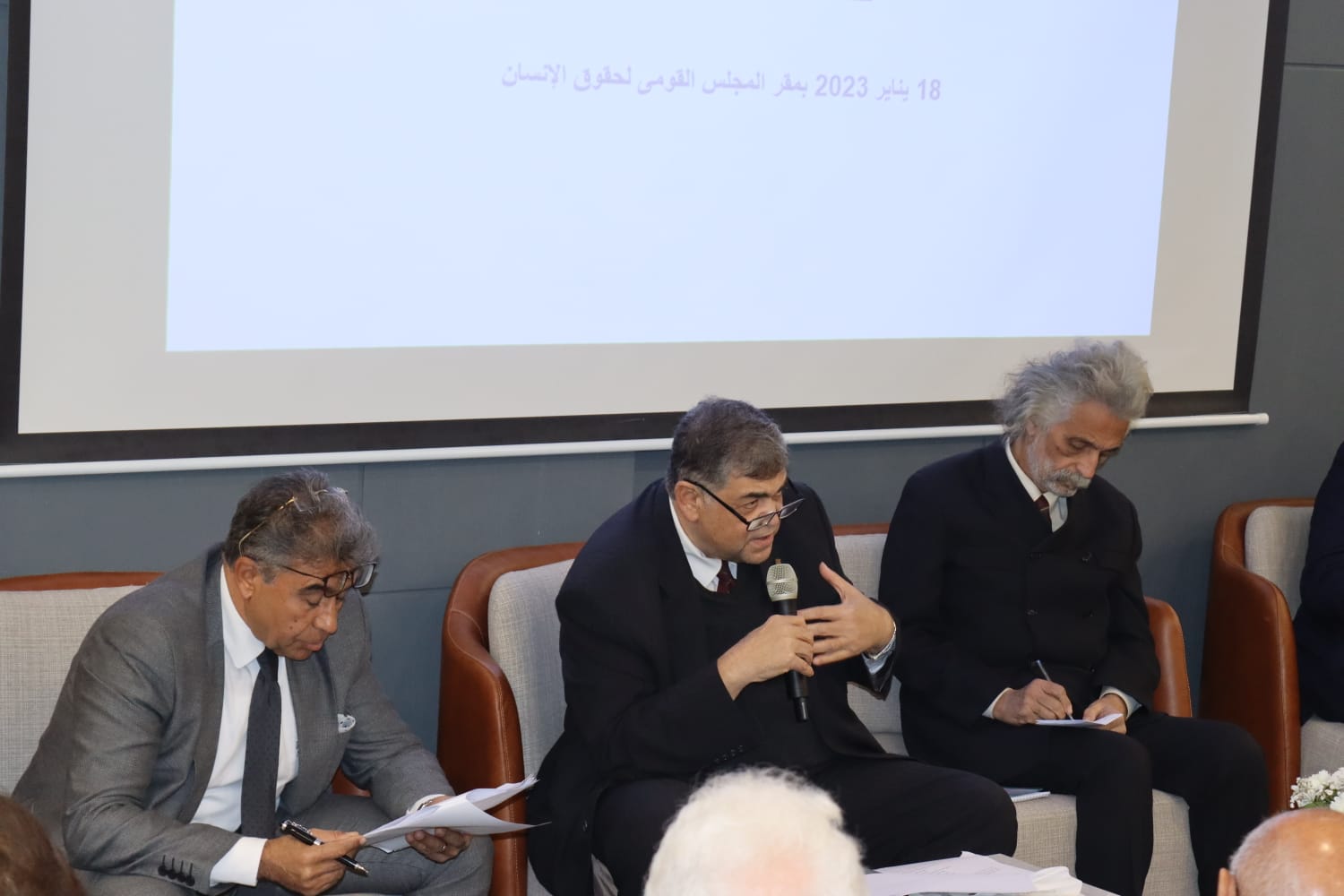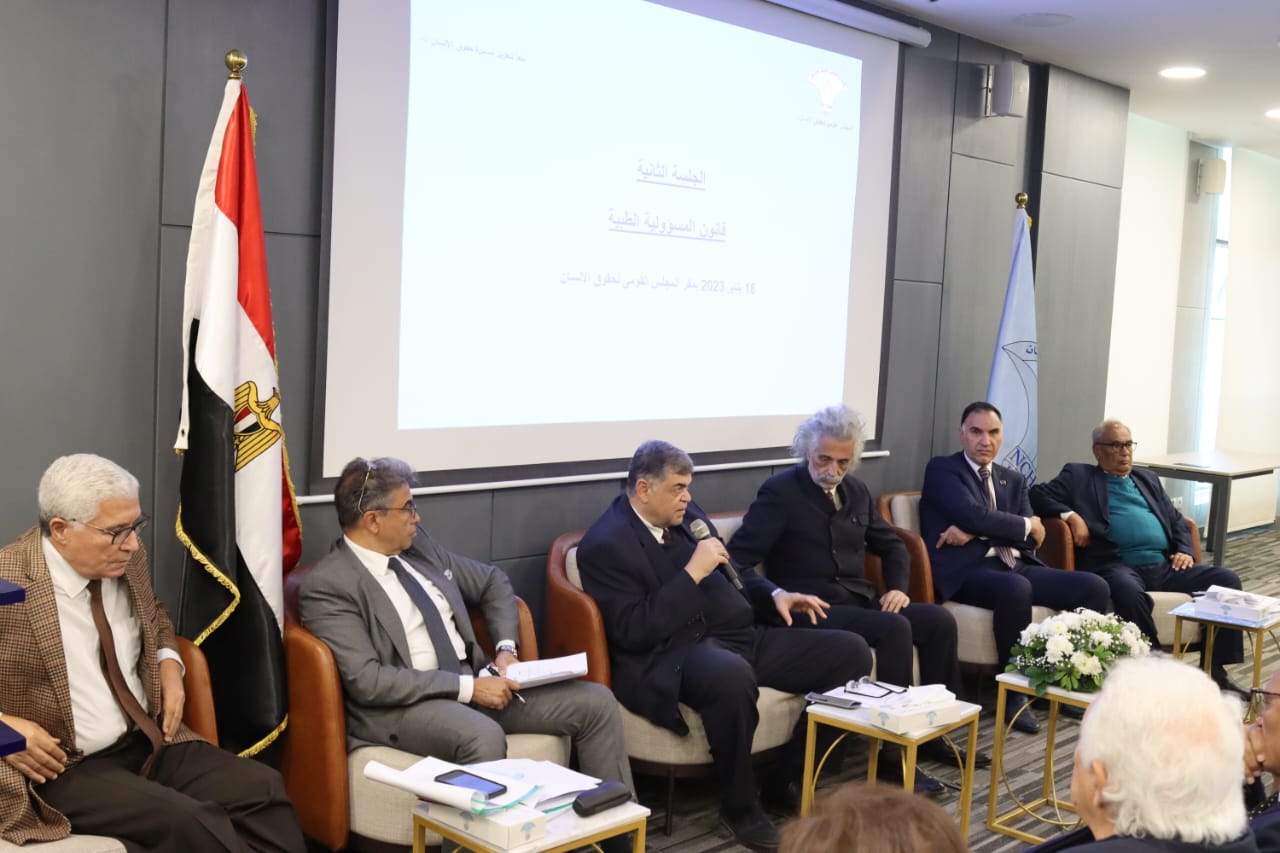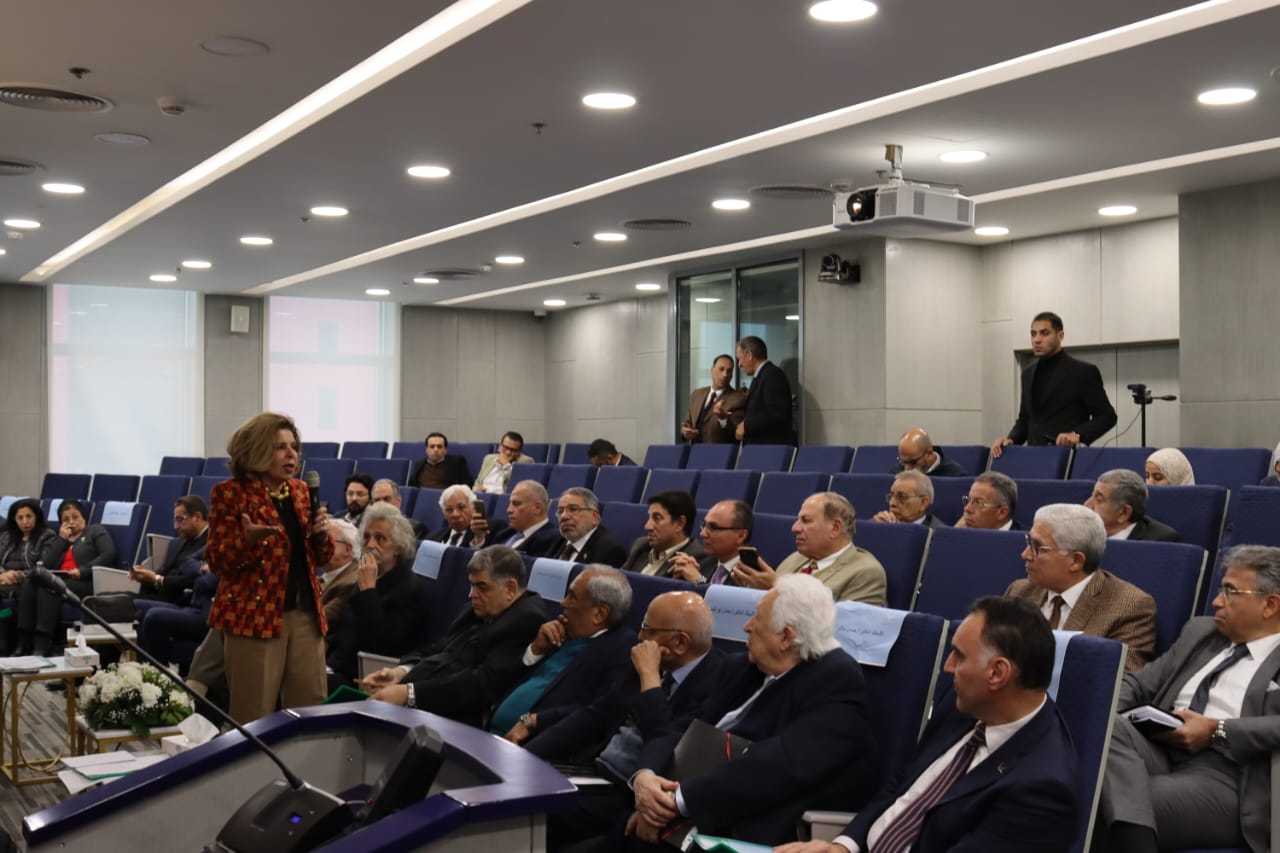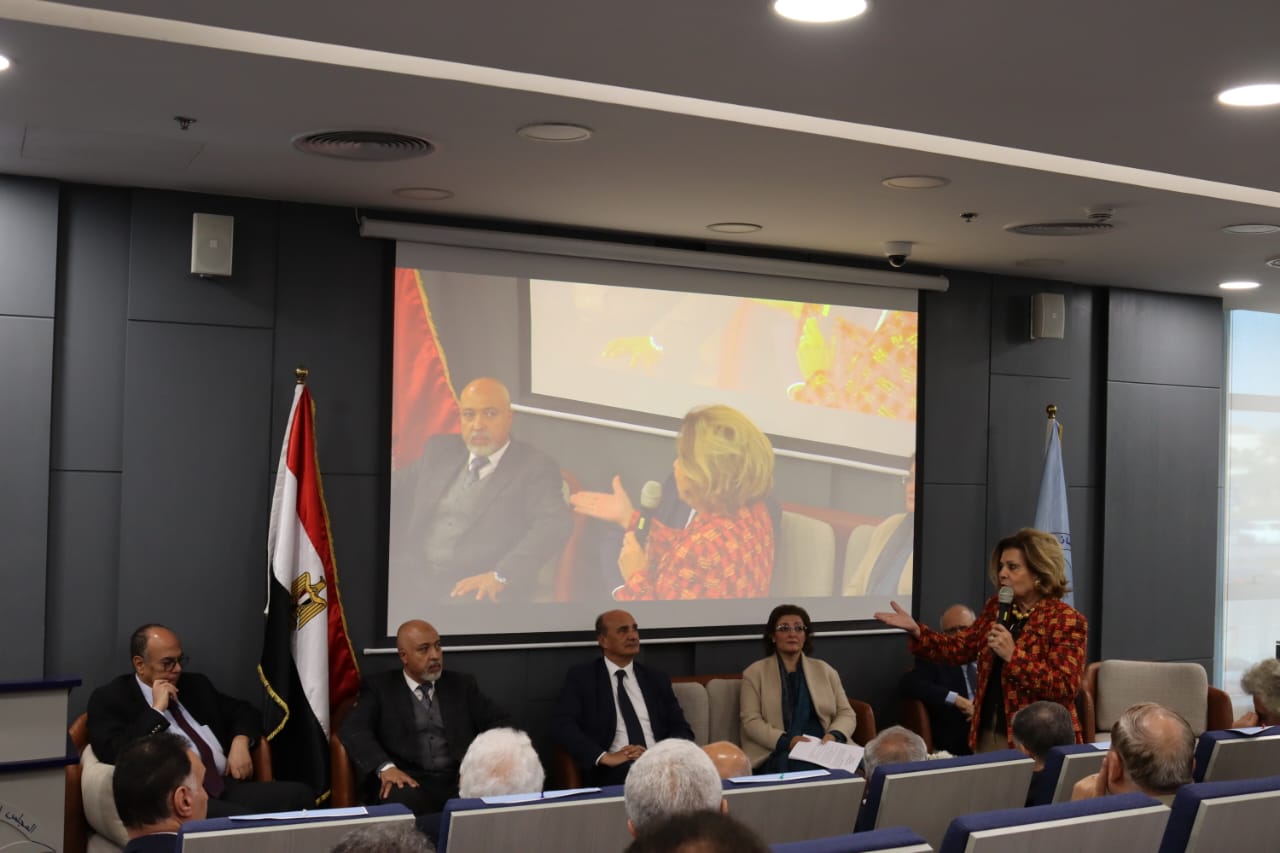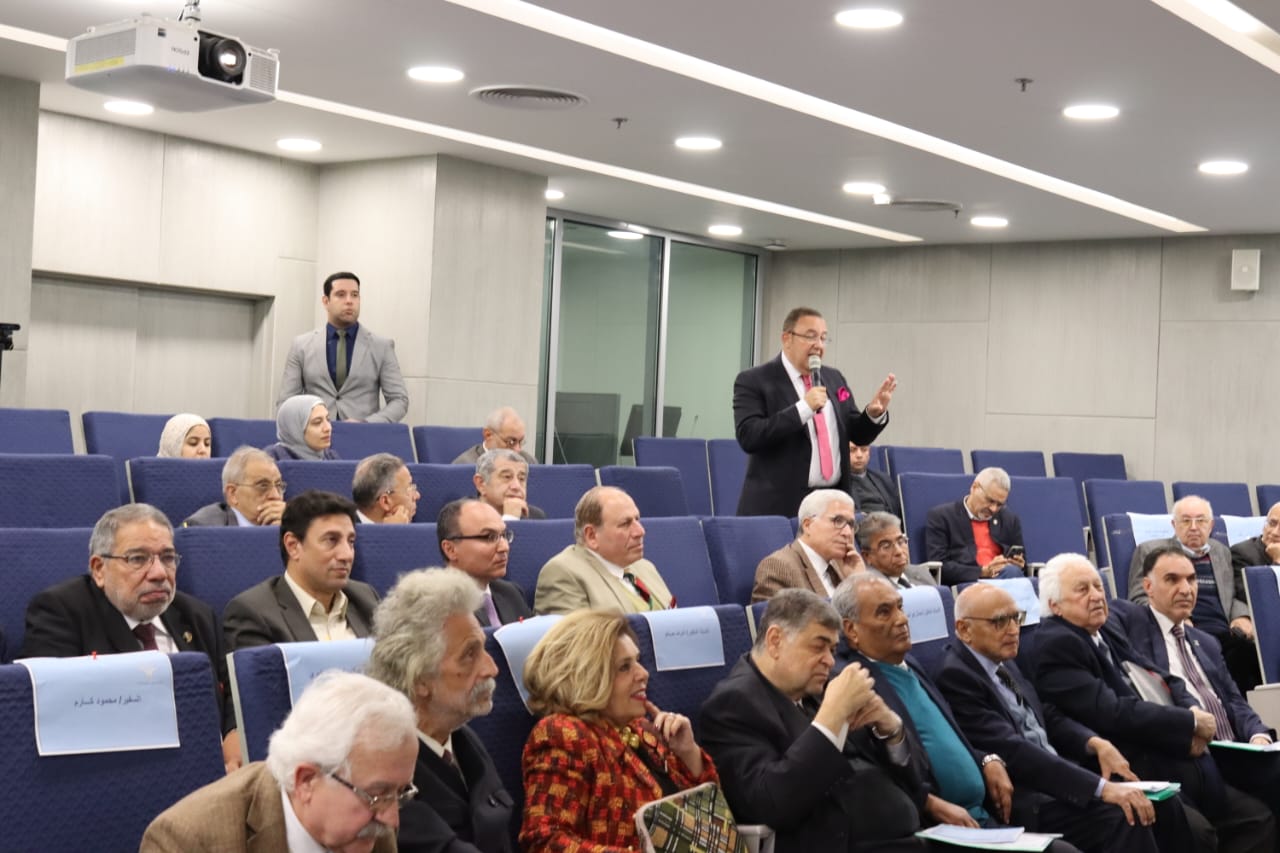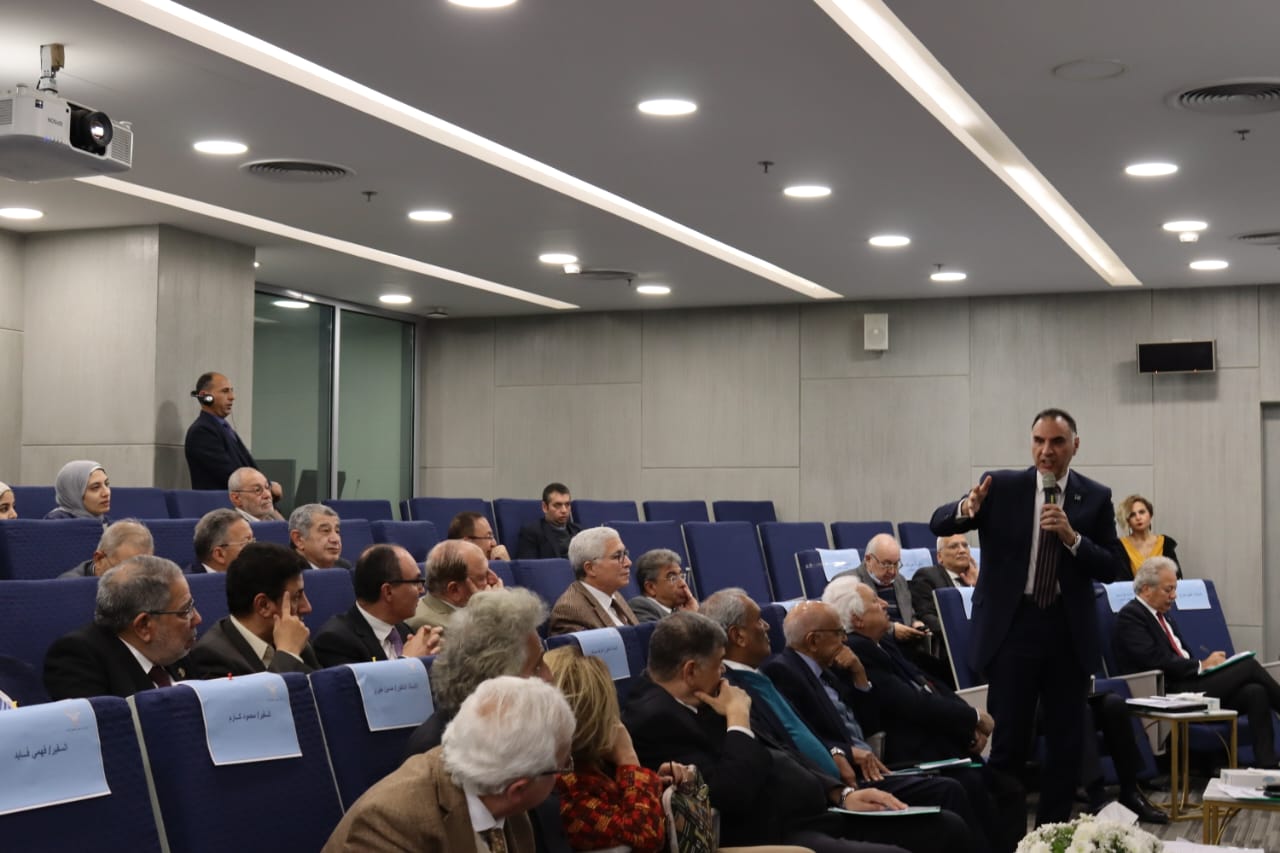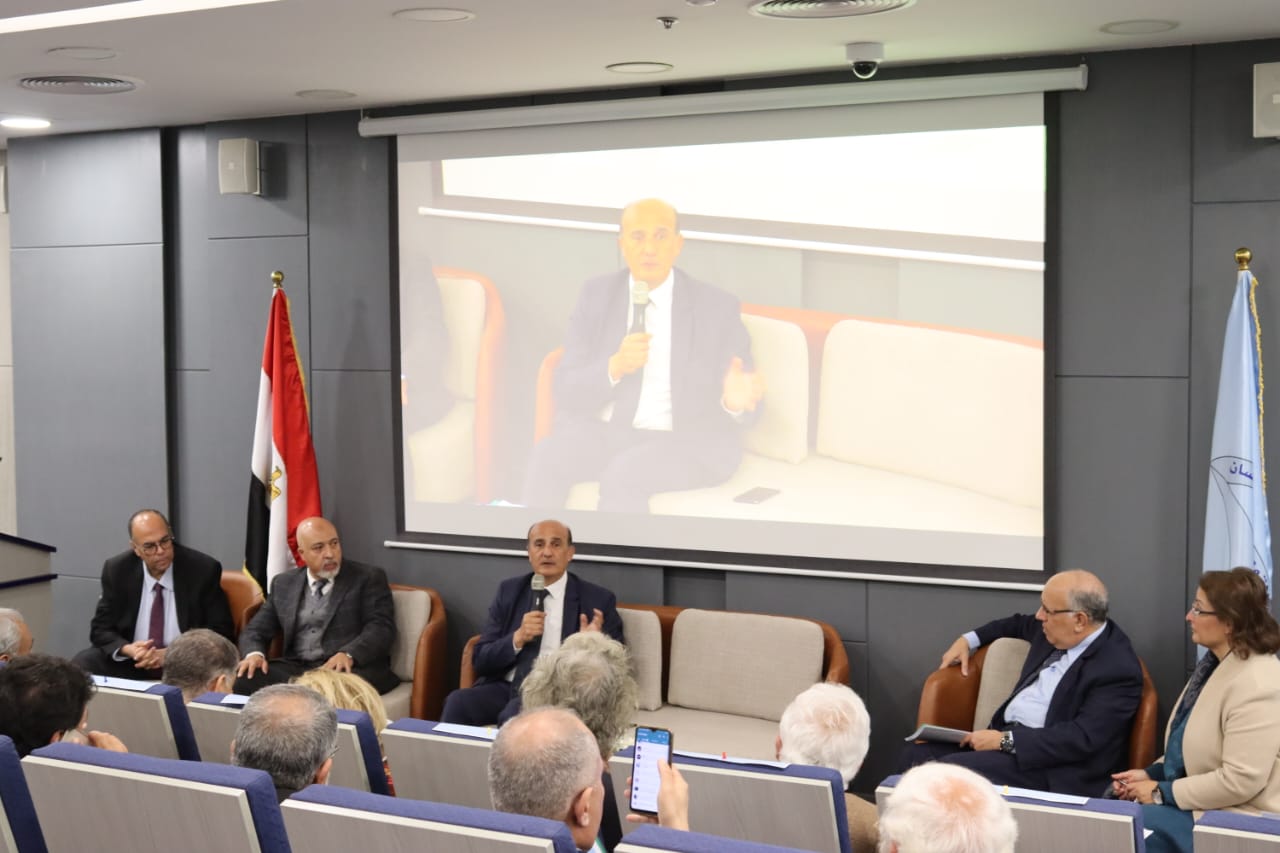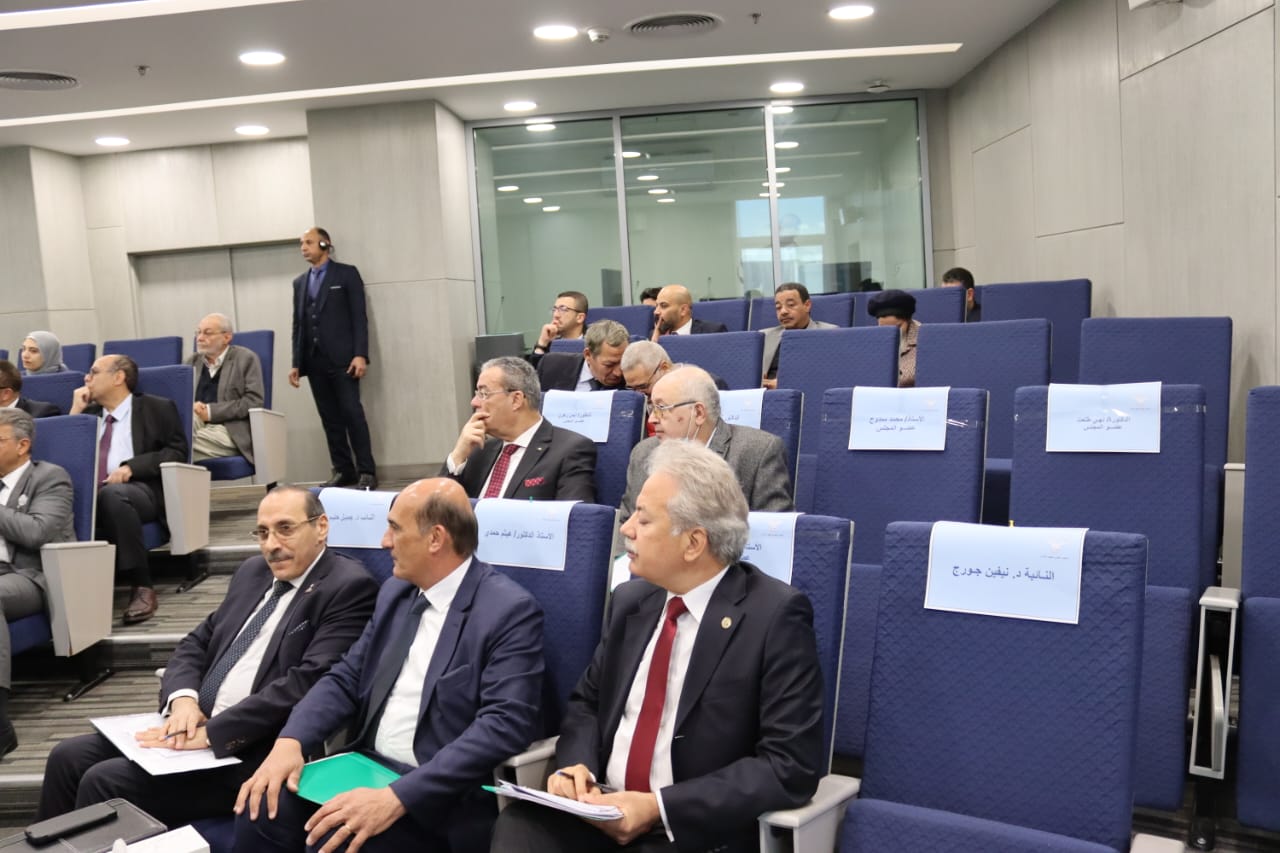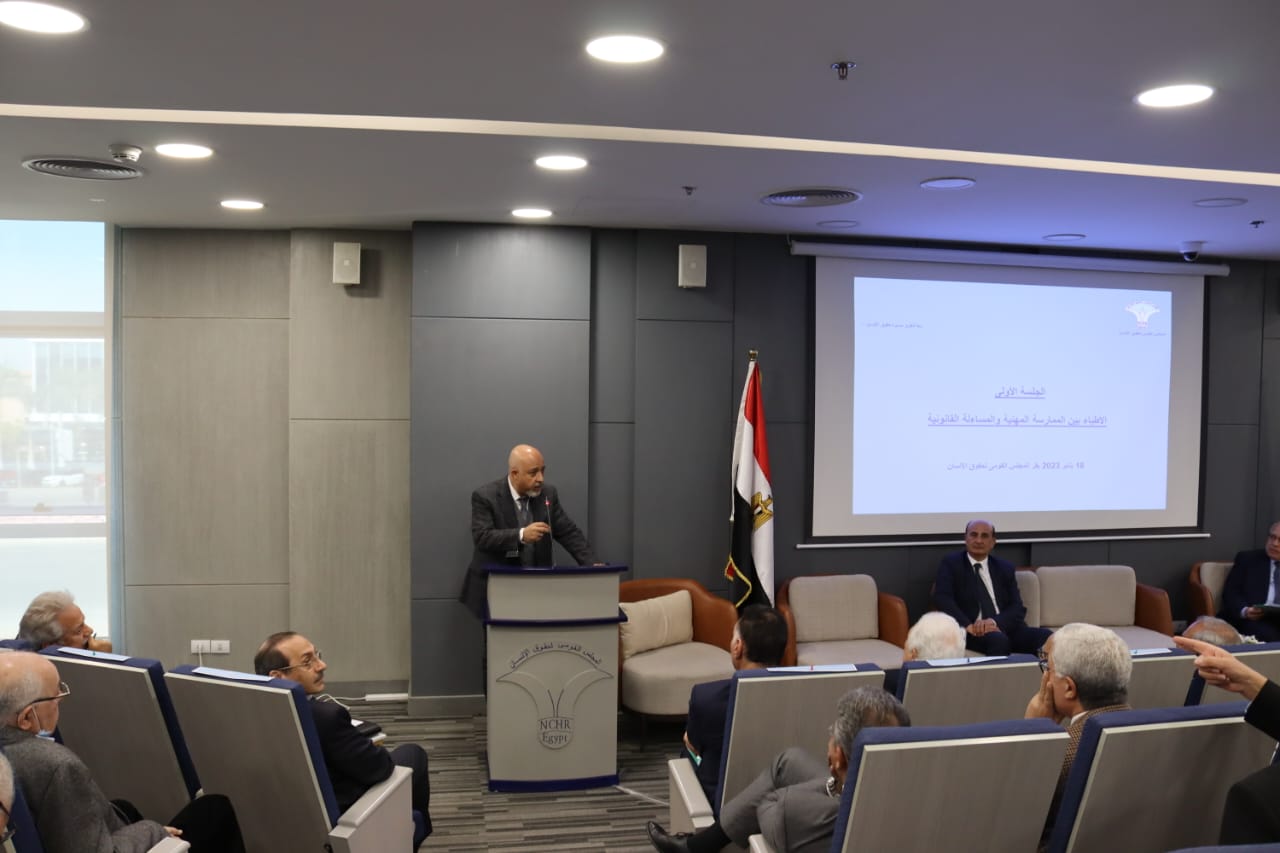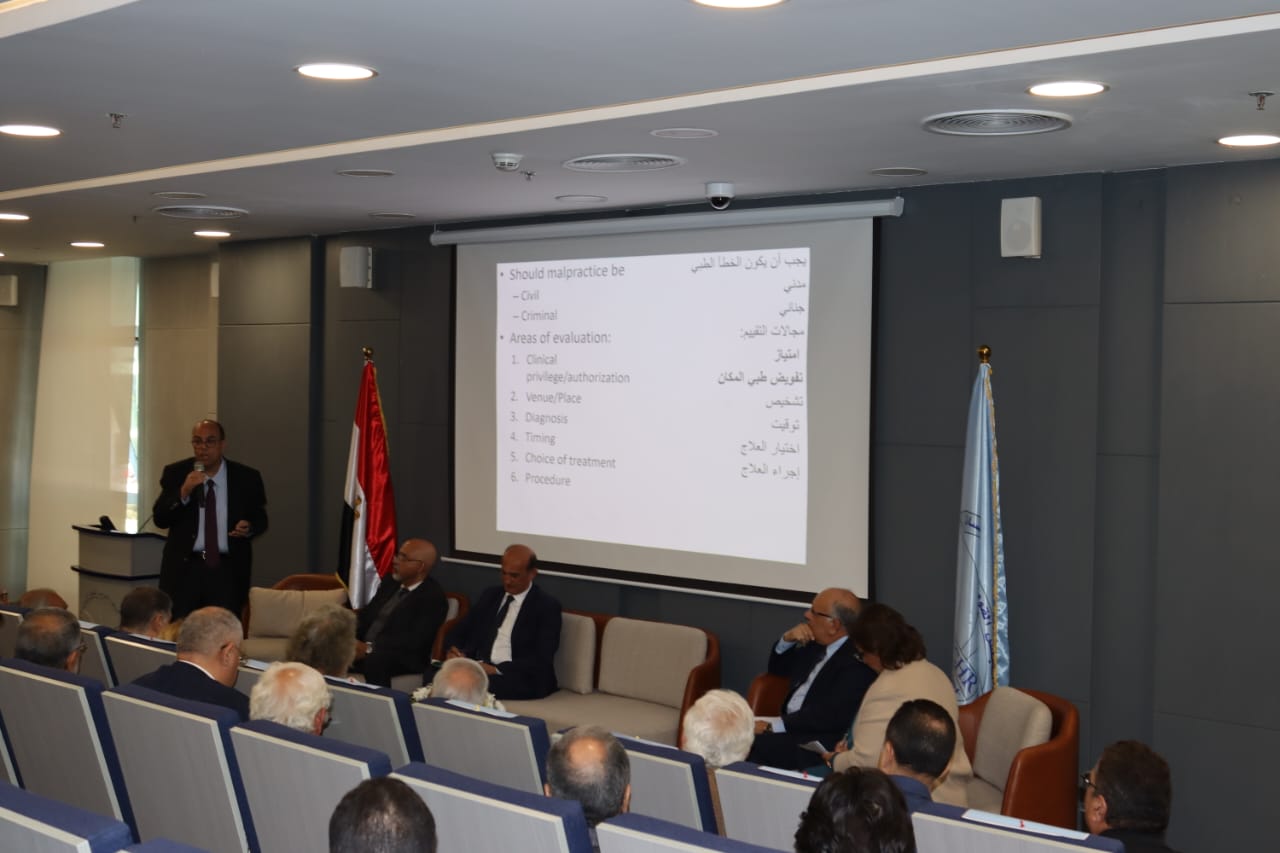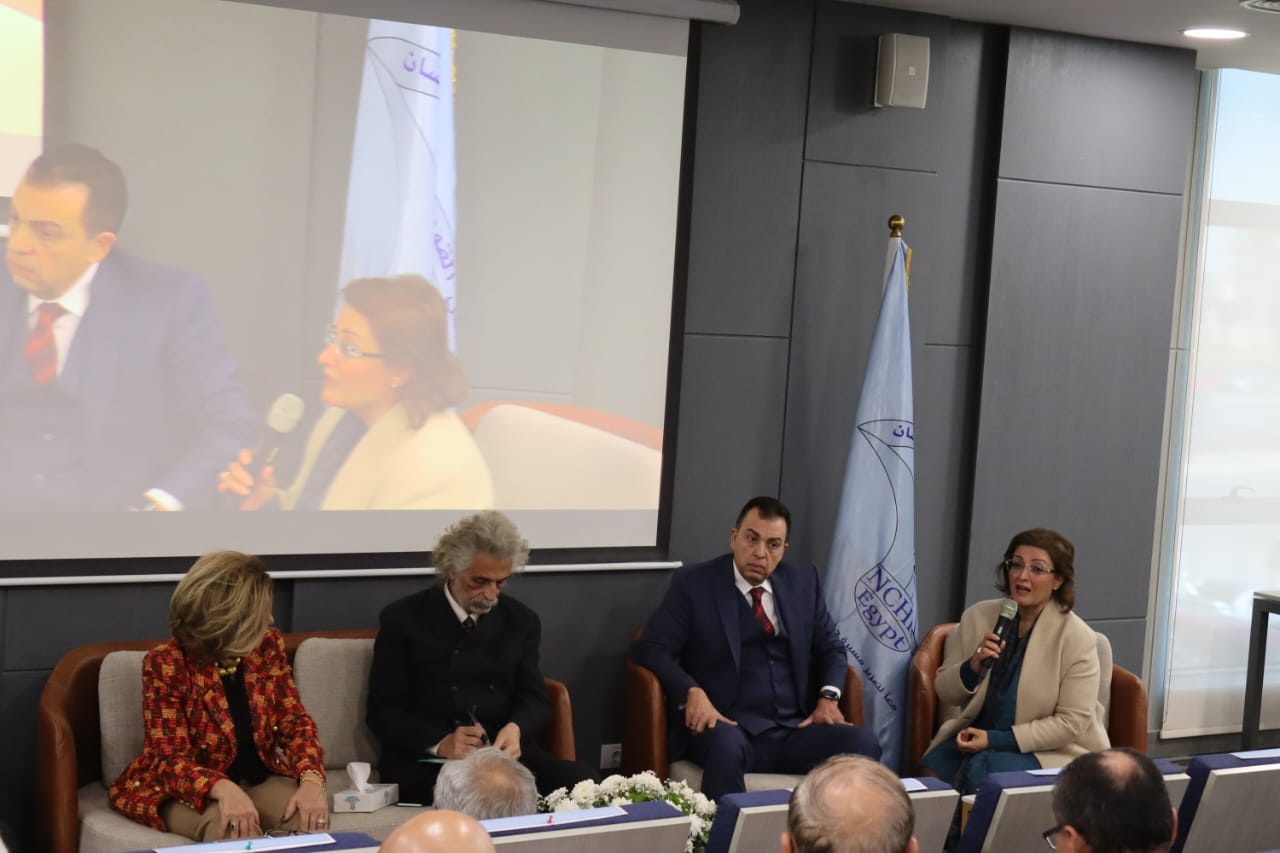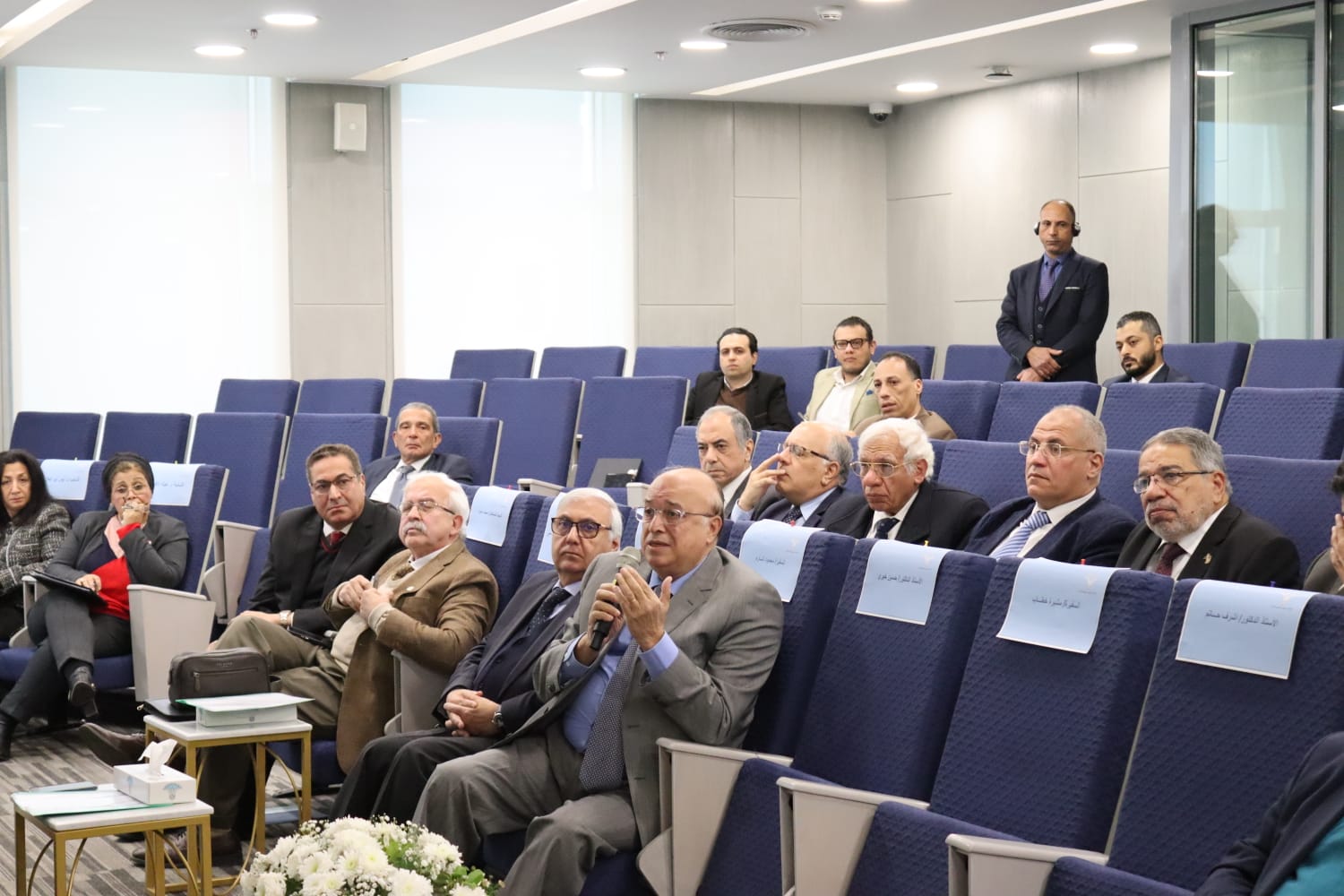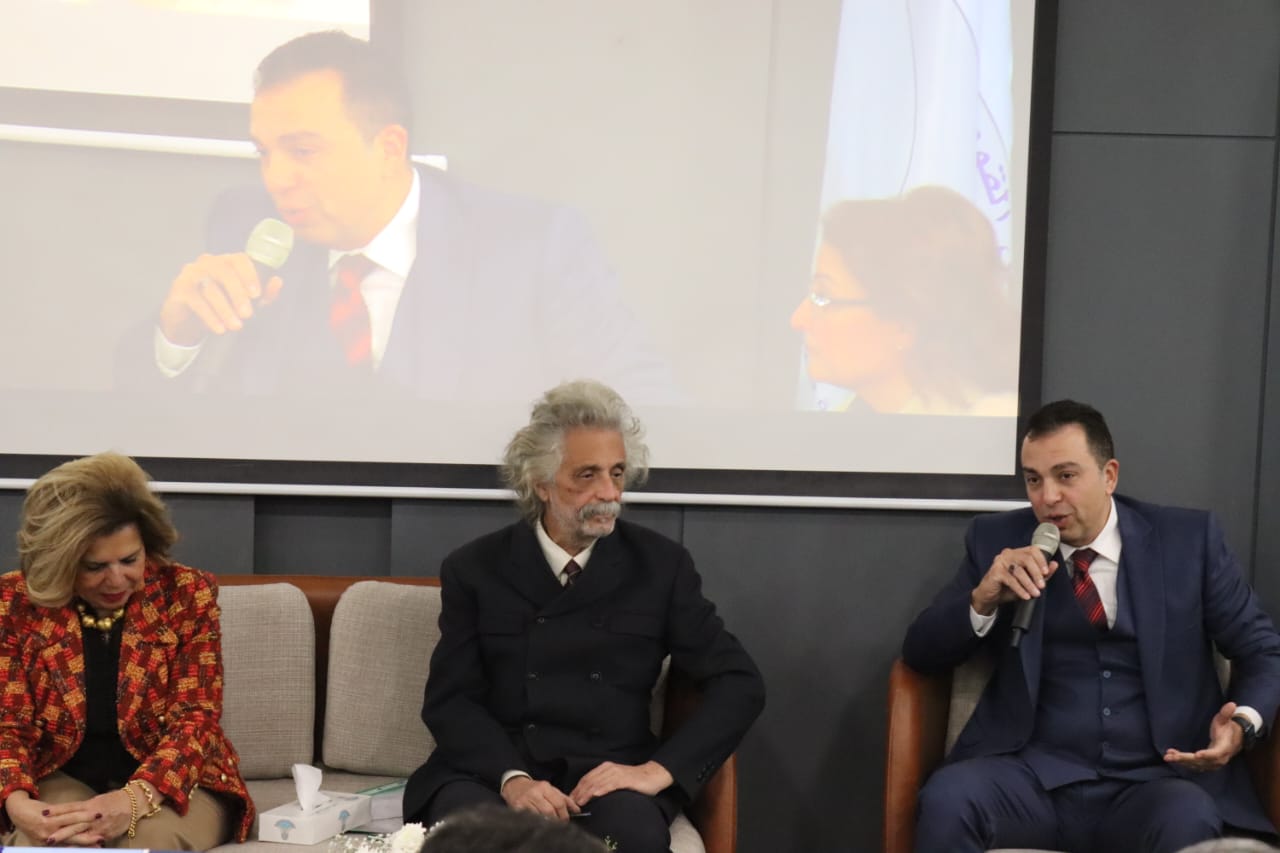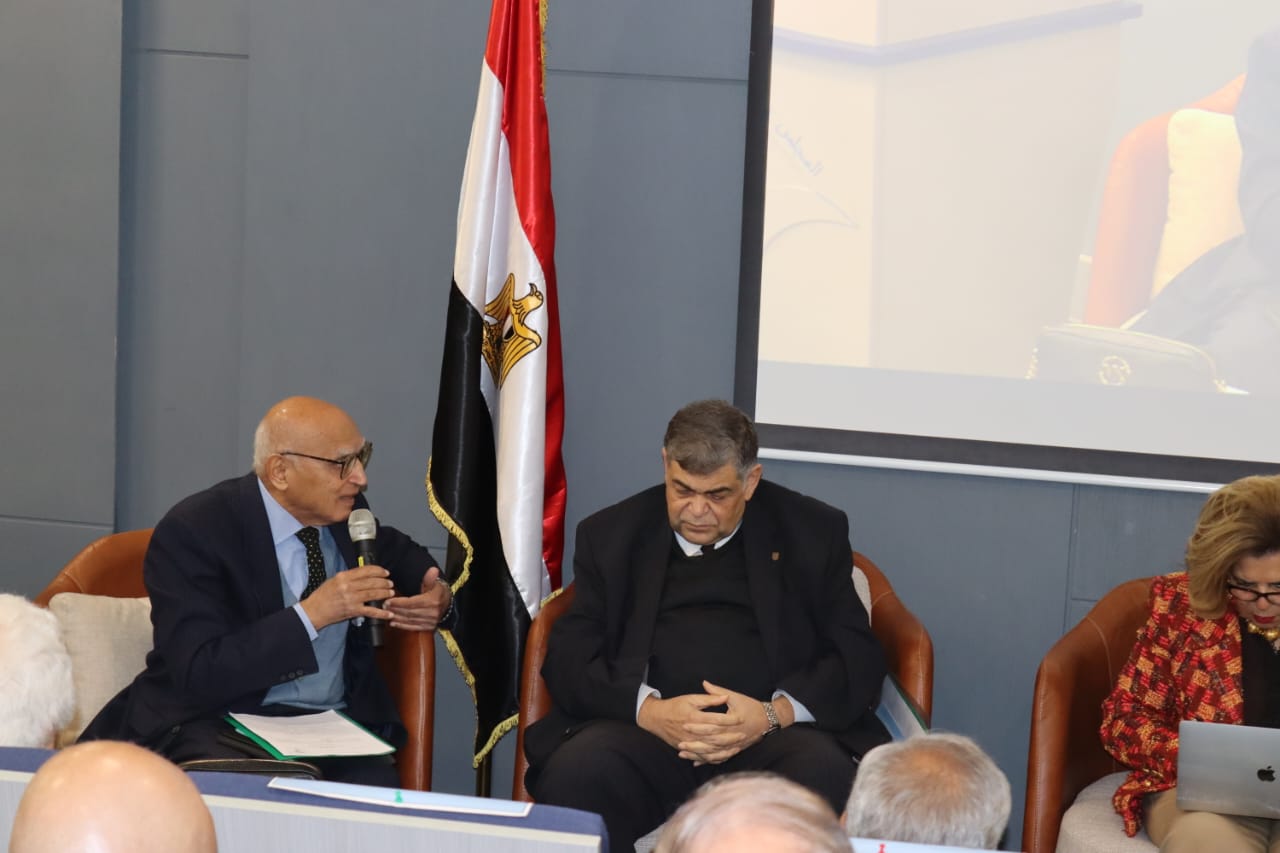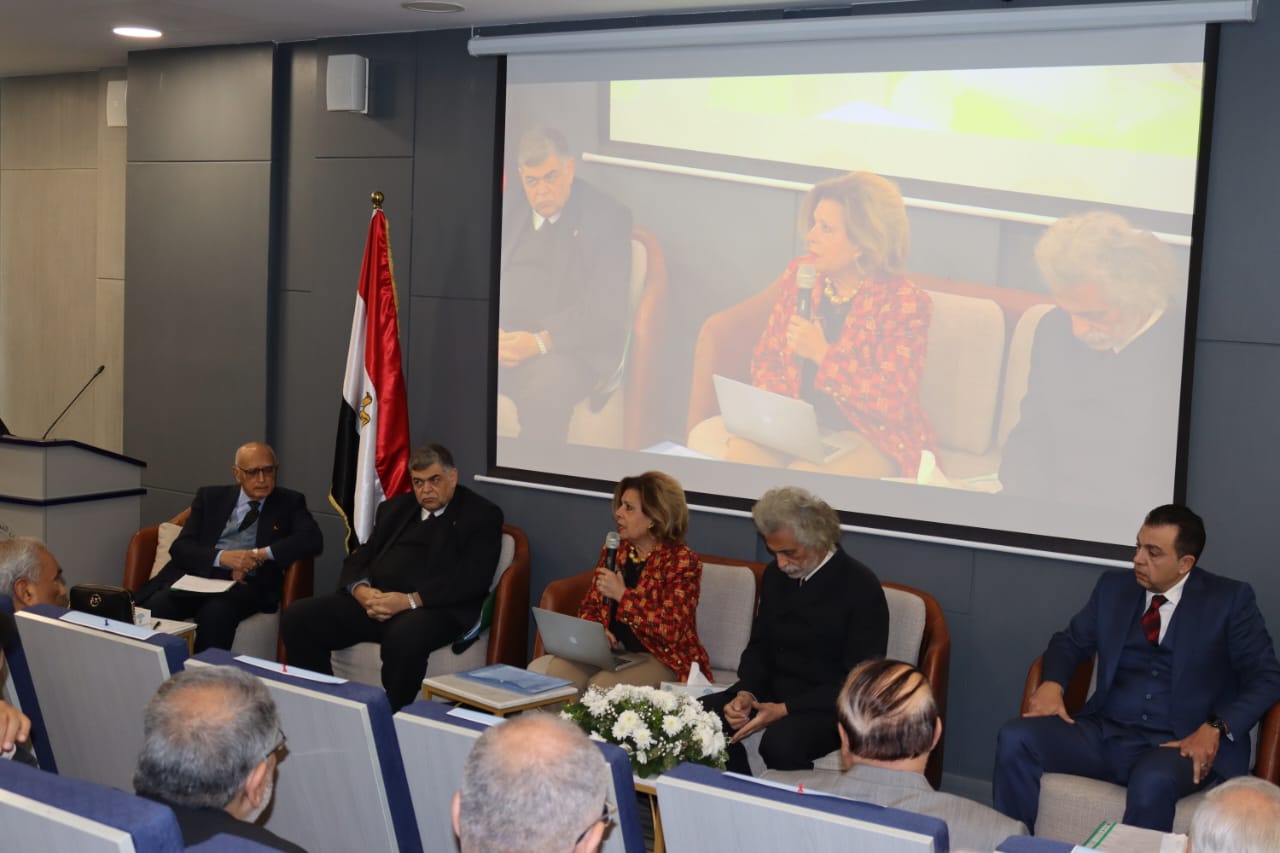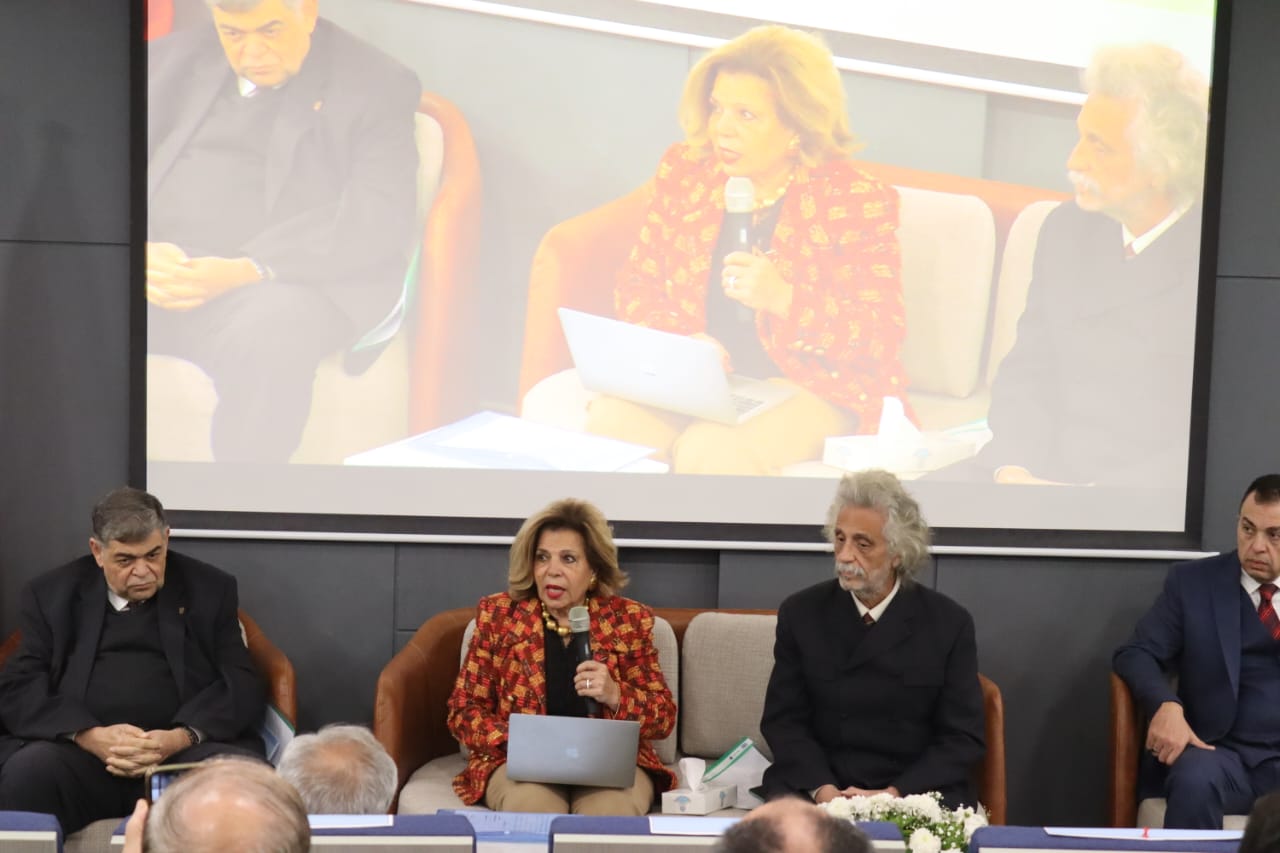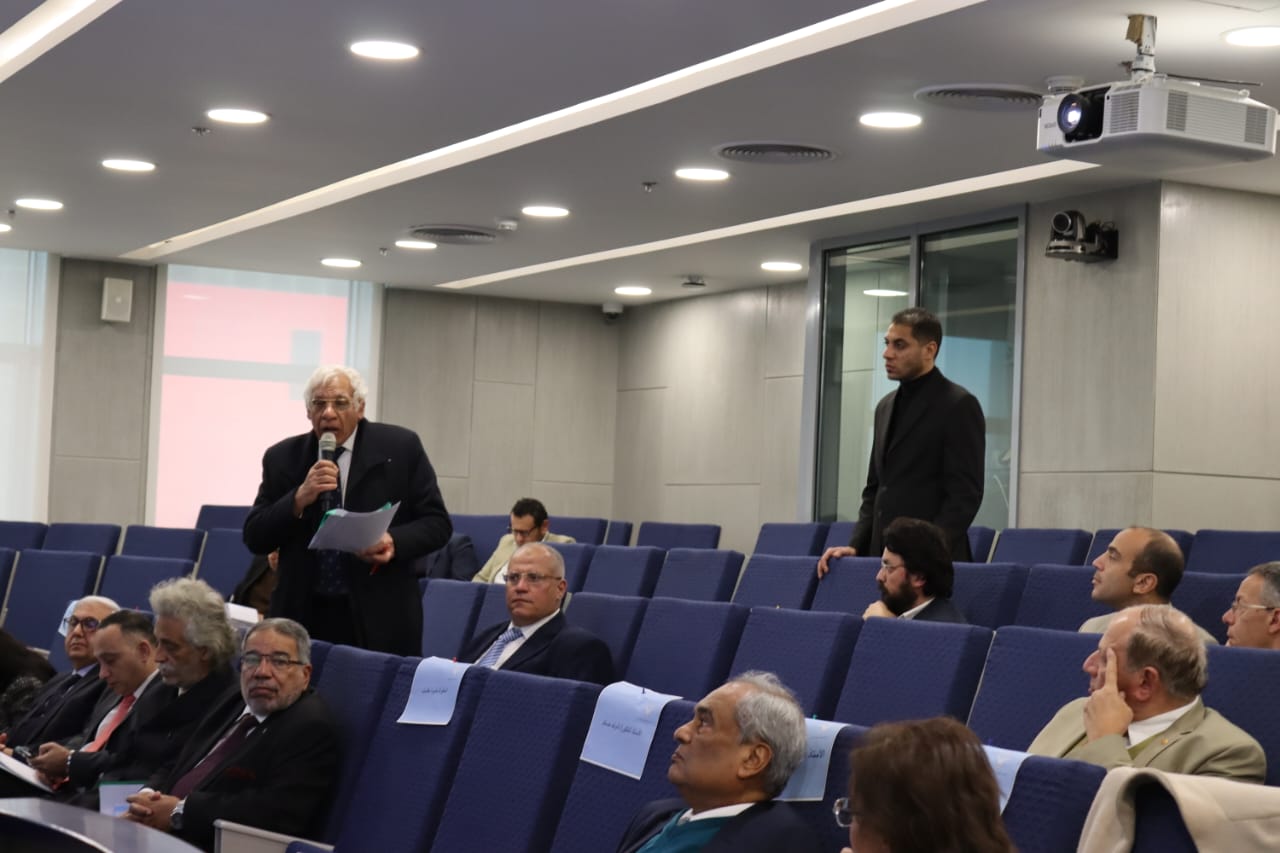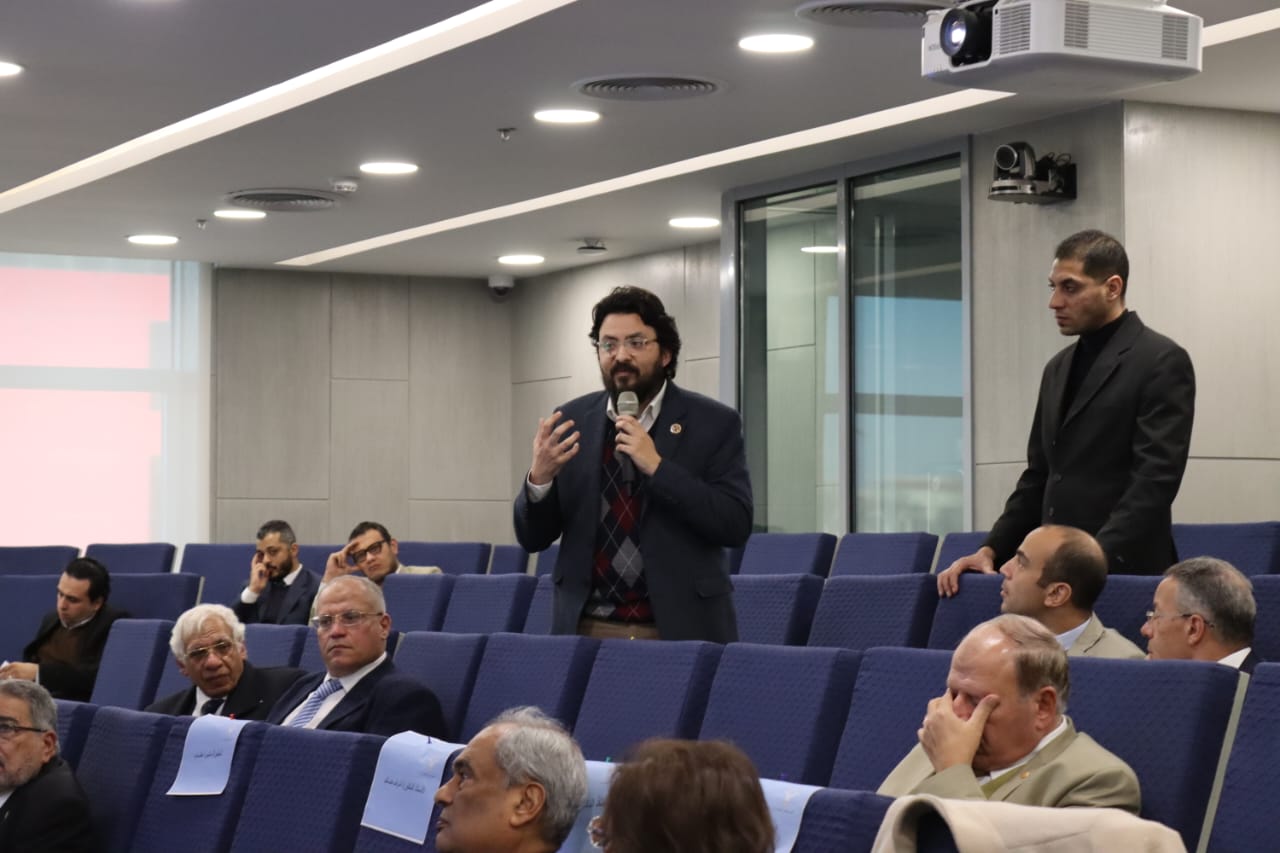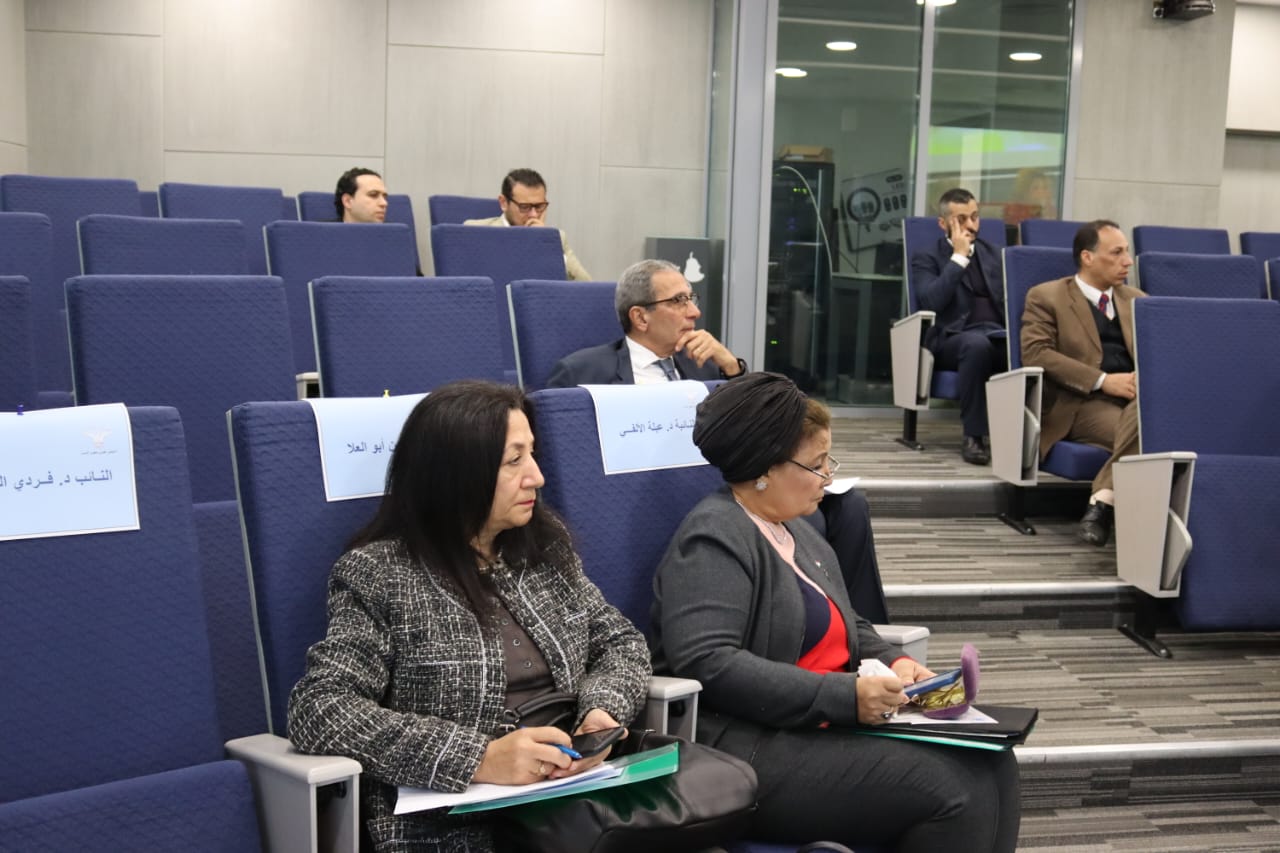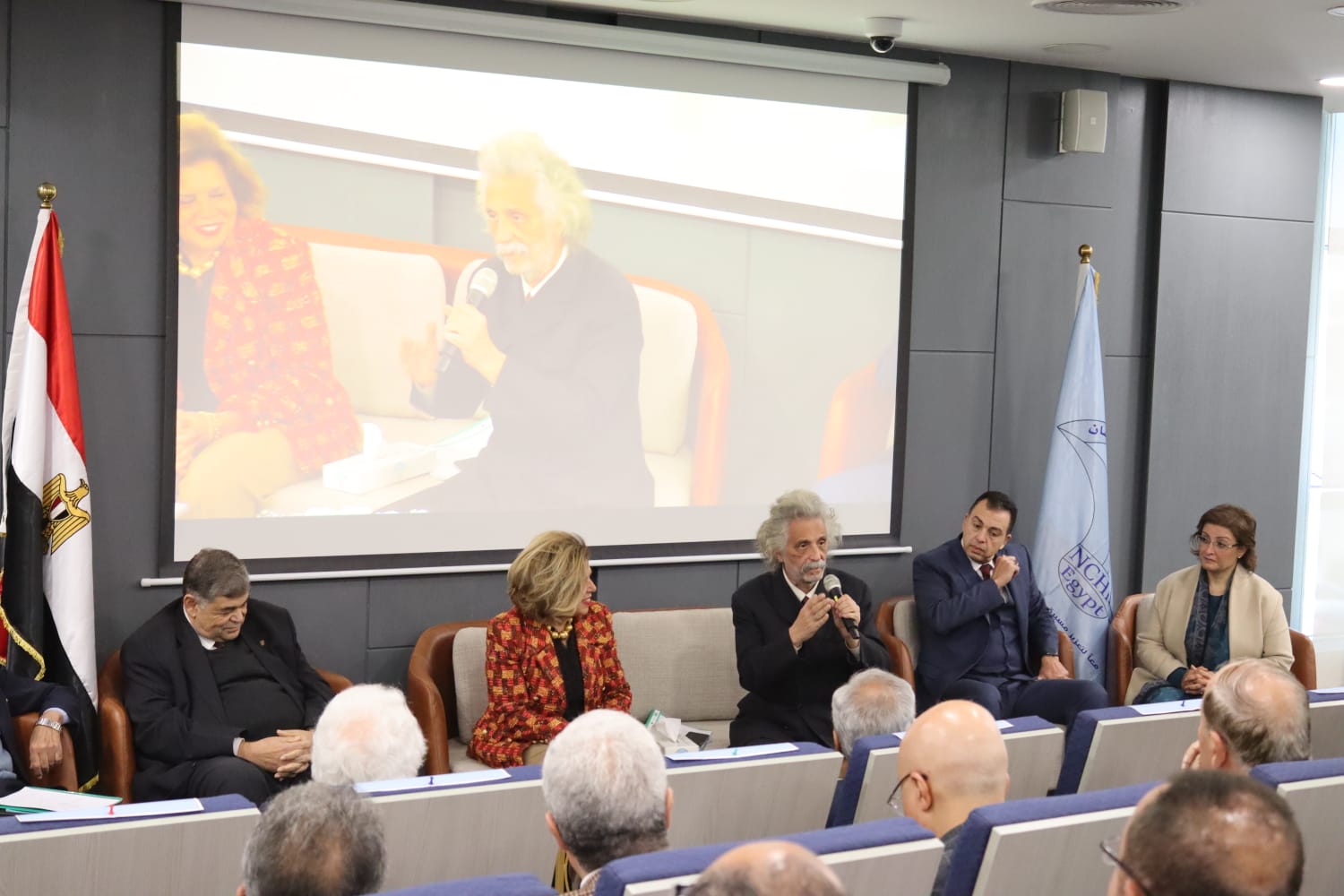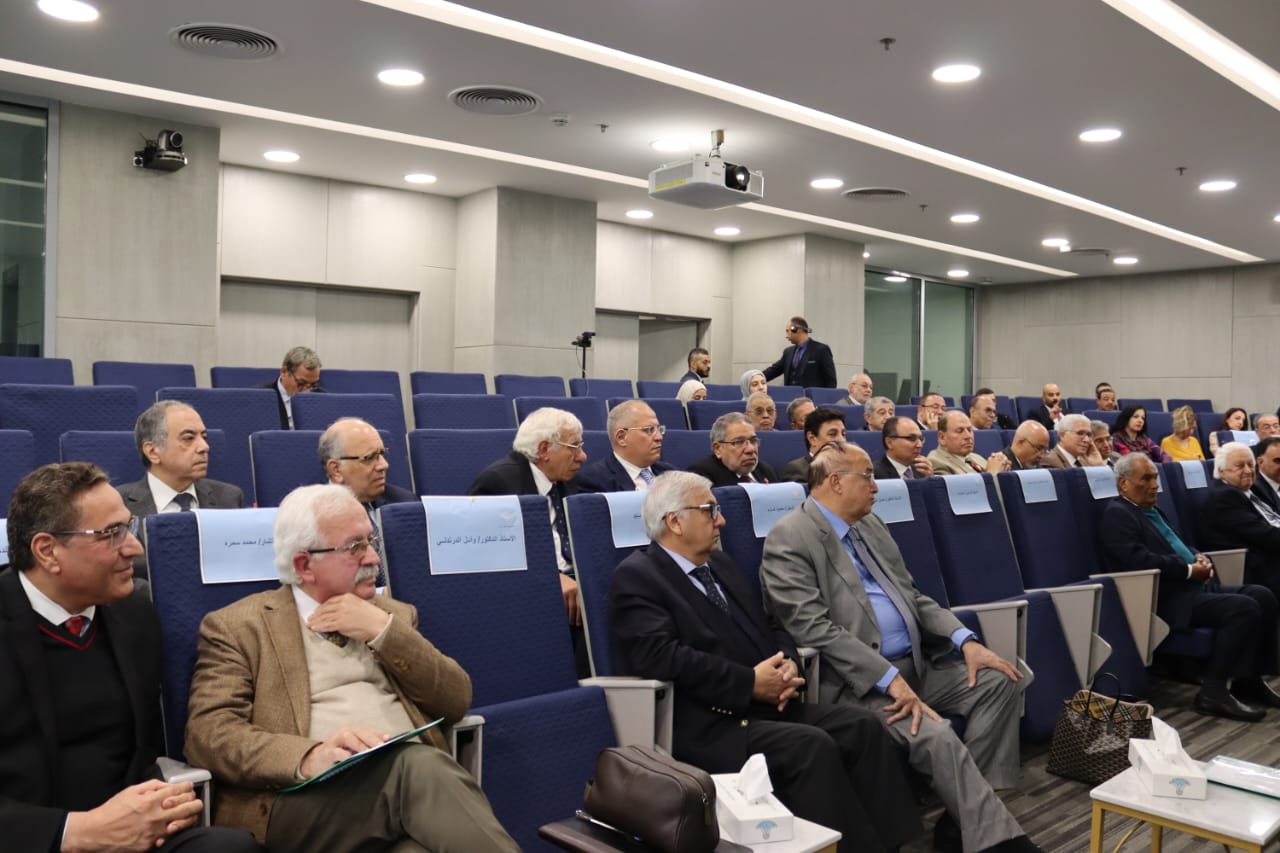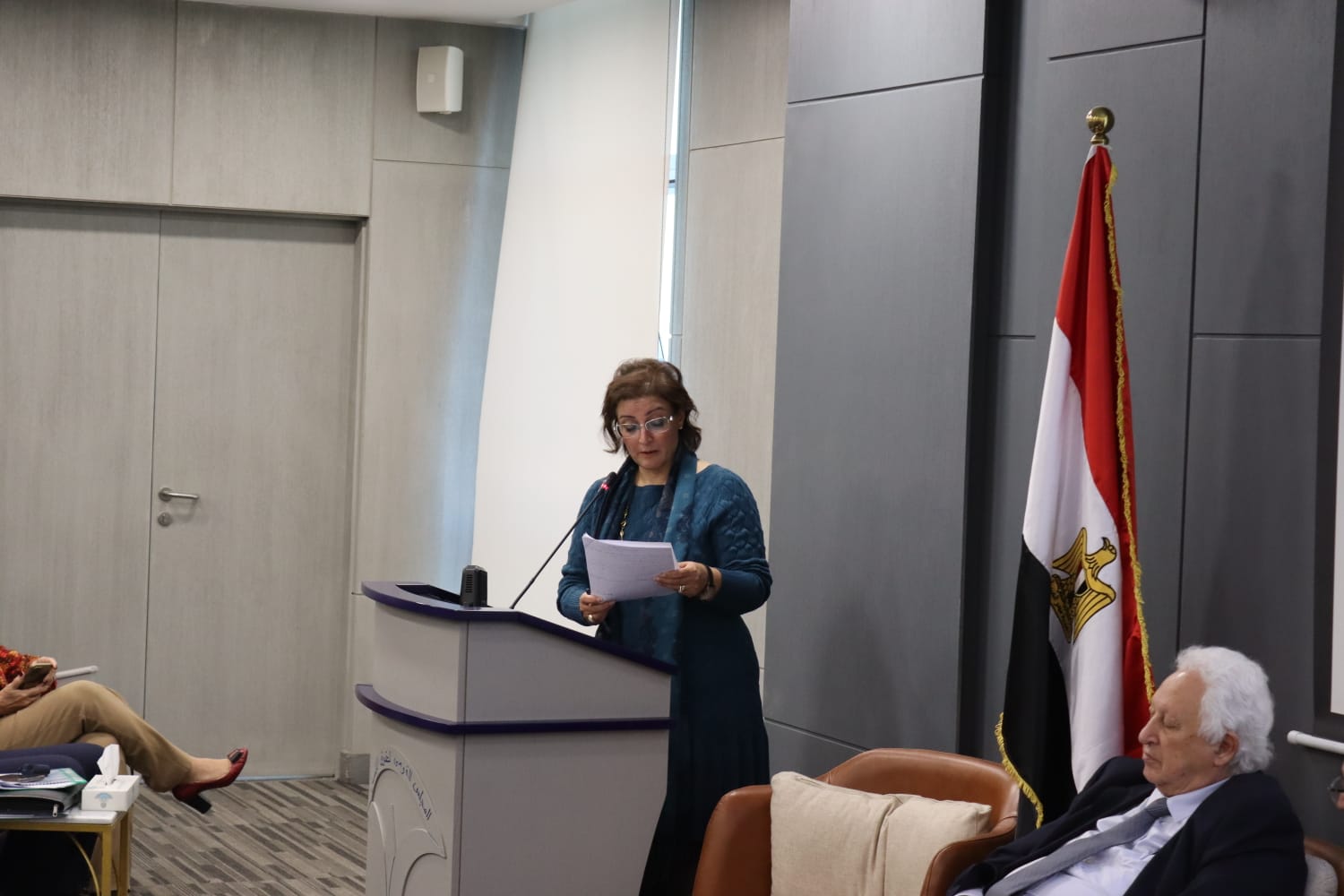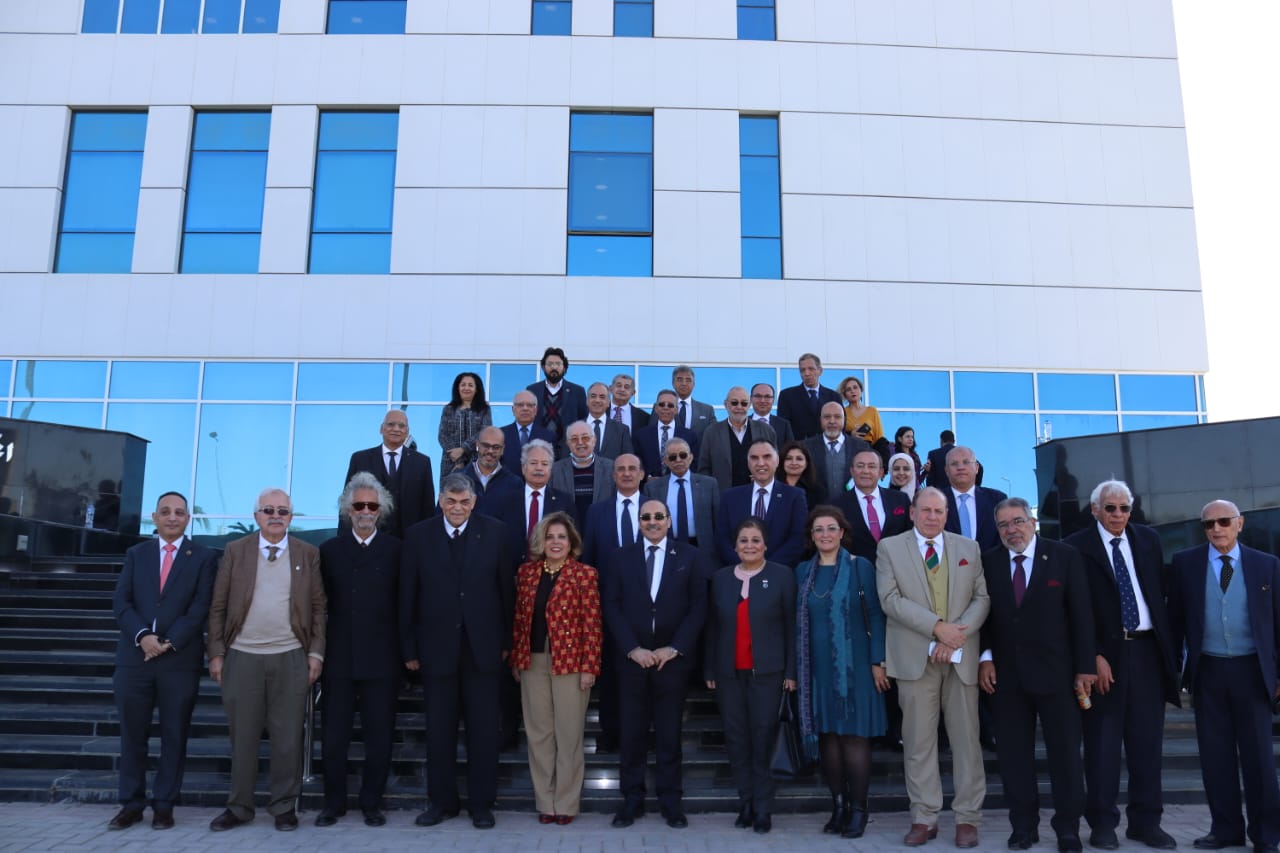A symposium at the National for Human Rights calling for the speedy issuance of the Medical Liability Law and conducting a societal dialogue on it
Within the framework of the National Council for Human Rights (NCHR) interest in protecting Egyptian Human Rights, and in connection with the right to health and in light of what it targeted by the National Strategy for Human Rights, NCHR organized a panel discussion entitled "The rights of doctors and patients between legislation and practice". In the presence of Dr. Ashraf Hatem, Chairman of the Health Committee in the House of Representatives and former Minister of Health, Dr. Hussein Khairy, President of the Egyptian Medical Syndicate, Dr. Gamal Abu Al-Surour, Professor of Medicine Al-Azhar and former president of the International Federation of Obstetrics and Gynecology, counselor Mohamed Samra, Head of Appeal and Member of the Legislative Sector at the Ministry of Justice.
The panel discussion was opened by Ambassador Moushira Khattab, President of NCHR, who emphasized in her speech that the right to health is a human right linked to human dignity, and health is closely linked to the human being, because it enables him to live a healthy and dignified life and added that there will be a community dialogue concerning this law. The panel discussion came out with a set of recommendations related to the medical liability law, as it indicated the need to achieve a balance between the rights of doctors and the rights of patients, so that the citizen’s right to obtain integrated health care is preserved, and the doctor’s right to carry out his work duties in an atmosphere of calm and reassurance and lead to improvement of work conditions in the health system, by reaching consensual articles regarding the following articles of the law:
1- Article 23: Codify the imprisonment penalty for doctors in the narrowest scope if there are criminal suspicions, work without a license, or intentional harm.
2- Article 23: Reconsidering the amounts of medical fines, as they are exaggerated
3- Adding an article related to the obligations of the medical facility with the imposition of penalties on the medical facility in case it fails to apply the required medical and professional standards.
4- Article 22: Cancellation of the phrase “without prejudice to any penalty provided for in any other, more severe law..”
5- Explicitly stipulating the formation of the sub-committees, their terms of reference, and the organization of their work, as they will actually be the body that will review the investigations
6- Article 12: The report issued by the Medical Liability Reporting Authority must be one of the documents required for litigation
7- That no legal action be taken with the defendant until after the Supreme Committee issues its report (arresting the doctor, or detention pending investigation or renewal, ....)
With regard to the recommendations regarding training doctors and raising their competence, the recommendations stipulated that the goal is to provide quality medical education and specialized training at the best level in order to preserve the level of the Egyptian doctor to always be at the forefront.
- Advance vocational training and continuing medical education
- Developing unified clinical protocols regarding good surgical and medical practices, which are available in all hospitals and treatment centers and are binding on doctors, with the aim of standardizing medical practices in Egypt.
All practicing physicians must have insurance coverage against accusation of medical malpractice.
- There should be guidelines on dealing with patient complaints in all hospitals, with the ability to provide financial compensation if negligence or medical error is proven.
- Training physicians and increasing their awareness of medical registration and the principles of writing medical reports.
With regard to recommendations related to patients' rights, they focused on:
Developing clear articles in the law to stipulate the rights of the patient, such as informed consent, knowledge of his treatment plan, and non-disclosure of patient secrets
- Providing approved written or visual materials to enlighten the patient about the disease, its dependencies and treatment
- Availability of clear forms for informed consent and approval of medical and surgical interventions in a manner that is easy for the patient or his representative to understand.
- Community awareness and the role of the media:
- Discussing important issues objectively and avoiding raising public opinion against doctors without being harsh in issues raised in the media, as this leads to what is called defensive medicine, meaning that some doctors may refrain from quick and effective intervention in complex cases whose treatment success rate is not great for fear of being locked up and thus the negative result will accrue to the patient.
- Providing a guide document on the patient's rights and the doctor's rights and duties.
- Providing clear instructions to the police when investigating a doctor accused of committing professional errors, and what are the circumstances that may restrict the freedom of the concerned doctor to investigate him and the possible period.
Members of the Health Committee in the House of Representatives and the Senate, representatives of the Ministry of Justice, representatives of the Doctors Syndicate, the Ministry of Health, the General Authority of Teaching Hospitals and Forensic Medicine, and a group of law professors and doctors from various universities and medical bodies such as the universities of Cairo, Ain Shams, Alexandria and Al-Azhar , Mansoura, Zagazig, Damietta, military and police hospitals, in addition to civil society organizations participated in the panel discussion.





 English
English
 Arabic
Arabic
 French
French
